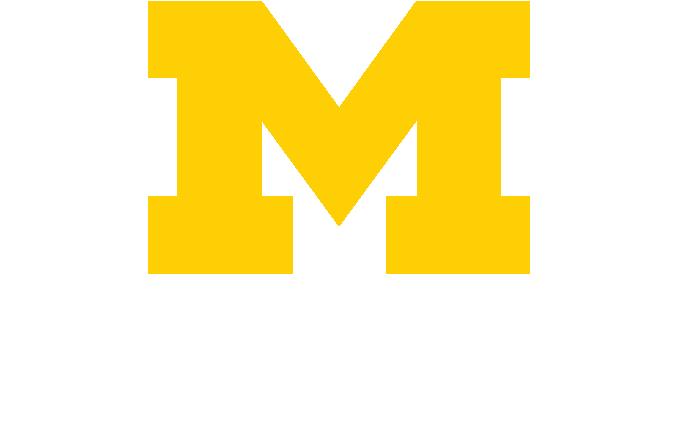




Dear Friends of Michigan Pharmacology,
I hope that you and yours are well and enjoying the Fall season with friends and family.
Michigan Pharmacology has had another impressive year! I am excited to share our accomplishments with you. We look forward to continuing our momentum and world-class scientific impact in 2026.
Some of our highlights include:
• We held the 4th Annual Pharmacology in Color Symposium on June 6, 2025. Dr. John Carethers, Vice Chancellor for Health Sciences, Distinguished Professor of Medicine, and Adjunct Professor of Public Health at UC San Diego, was our keynote speaker.
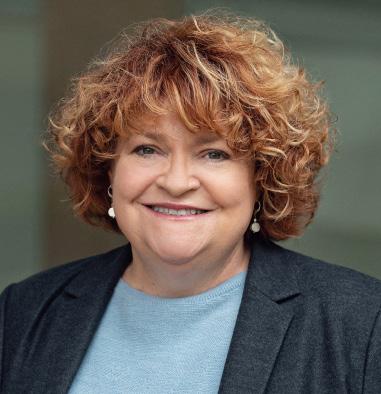
• We hosted colleagues from the Departments of Pharmacology at the Universities of Toledo, Wayne State, and Michigan State at the 51st annual Midwest Pharmacology Colloquium on June 13, 2025. Dr. Liz Berry-Kravis, Professor of Pediatrics and Co-Director of the Molecular Diagnostics Section of the Genetic Laboratory at Rush University Medical Center, was our keynote speaker.
• We held the 3rd annual Shaomeng Wang and Ju-Yun Li Lecture in October 2025, presented by Dr. Lotte Bjerre Knudsen, Chief Scientific Advisor and Head of Innovation & Data Experimentation Advancement at Novo Nordisk.
• Dr. Carrie Ferrario was promoted to Full Professor of Pharmacology and Dr. Eric Jimenez Vazquez was promoted to Assistant Research Scientist in Pharmacology.
• Dr. John Traynor was selected as a Fellow of the American Society for Pharmacology & Experimental Therapeutics.
• We awarded three new Pfizer-Upjohn Research Professorships in Pharmacology to Dr. Paul Jenkins, Dr. Erica Levitt, and Dr. Manoj Puthenveedu, respectively. The Professorship now held by Dr. Levitt was renamed the Dr. Emily Jutkiewicz Memorial Pfizer-Upjohn Research Professorship in Translational Pharmacology.
• We established the Dr. Emily M. Jutkiewicz Award Fund to support a graduate fellowship in Pharmacology.
• We awarded the inaugural Pfizer-Upjohn Early Career Research Professorship of Pharmacology to Dr. David Jones.
• We recruited two new graduate student cohorts for Fall 2025: 8 Ph.D. students and 9 M.S. students.
• We jointly recruited Dr. Meredith Skiba with the Department of Biological Chemistry. Dr. Skiba is an alumna of our Biological Chemistry PhD Program. She completed a postdoctoral fellowship at Harvard Medical School and now plans to establish an interdisciplinary research program studying the molecular function of G protein-coupled receptors. She is a key addition to our dynamic structural biology and signaling communities.
• Finally, we recruited Dr. Greg Collins from UT Health, San Antonio, as Associate Professor of Pharmacology, Associate Professor of Anesthesiology, and member of the Domino Research Center within the Department of Pharmacology. Dr. Collins will join Michigan Pharmacology in Spring 2026.
At Michigan Pharmacology we are prioritizing public scholarship, national leadership, and public service as we engage with the greater University in the Look to Michigan vision: As the most comprehensive and distinguished public university in the world, the University of Michigan bears a profound responsibility not only to lead in scholarship and innovation but also to serve as a thoughtful compass in challenging times. In the words of our new University of Michigan President, Dr. Domenico Grasso: “Let’s seize this moment. These are challenging times for many essential institutions in our country, including higher education. There is skepticism and mistrust. While I believe much of it is without substance, I also think we must work harder than ever to show — not just tell — how we make a positive difference. We do this through quality medical care, lifechanging education, and a stimulating environment that fosters new knowledge and technology, creativity, and service to society.”
As part of the Look to Michigan vision, we are in the process of launching the Campaign for Michigan Pharmacology, with an overall $30M fundraising goal to endow our Department to sustain its impact through the 21st century. To explore how your generosity can support our campaign and make an impact on our work in a meaningful way, please reach out to our UM Development contact: Jayson Rose at rosejay@med.umich.edu.
Thank you for your generous support of Michigan Pharmacology. I love hearing from our alumni, and I encourage you to share your ideas with me as we continue to move our Department forward.
Go Blue!
With warmest regards and best wishes,

Lori L. Isom, Ph.D.
Maurice H. Seevers Professor and Chair of Pharmacology
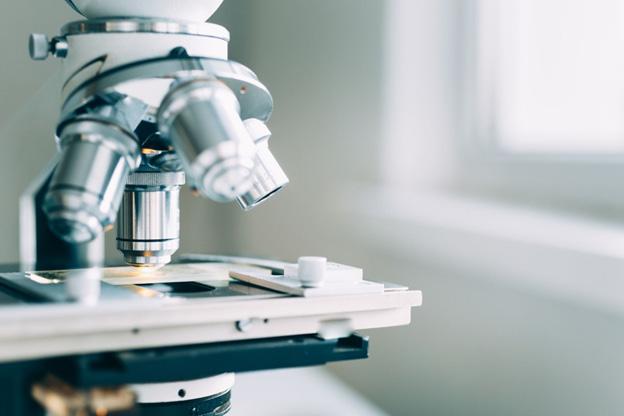
“Michigan Pharmacology continues to promote a collegial and inclusive culture - a scientific home where individuals from all backgrounds feel valued, welcomed, and appreciated. Our goals are to be a place where faculty, staff, and trainees enjoy working, learning, and growing together; to be a place where people know that their voices are heard; and to be a place that our alumni are proud to call ‘home’.”
- Dr. Lori Isom

Kaitlyn Digsby awarded a $10k research fellowship from the VitreoRetinal Surgery Foundation
Kaitlyn Digsby has recently been awarded a $10k research fellowship from the VitreoRetinal Surgery Foundation for her research project entitled “HIF1a signaling as a mechanistic link between hypoxia and the formation of reticular pseudodrusen deposits in age-related macular degeneration”.
Congratulations, Kaitlyn!

Read more about the fellowship here.
Hassan Hosseini (K. Jones Lab) receives Research Excellence Award from Mightex
Hassan Hosseini, Research Laboratory Specialist (K. Jones Lab), has been awarded a Research Excellence Award from Mightex. The Mightex Research Excellence Award Competition is established to reward research students and postdoc researchers, who have successfully used Mightex’s equipment to conduct cutting-edge research and accomplished quality results.
Congratulations, Hassan!
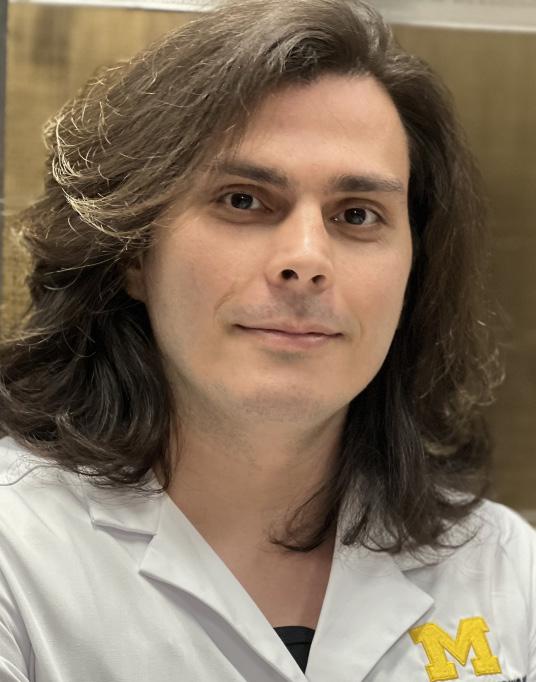
ORTDD career development spotlight featuring Dr. Carrie Ferrario
The Office of Research Training, Diversity, and Disparities at NIH did a career development spotlight featuring Dr. Carrie Ferrario!
Read about it here.
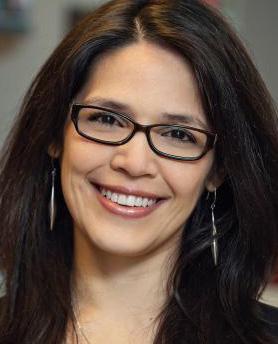
Jacob Ormes awarded best poster presentation at the BBC
Jacob Ormes has recently been awarded best poster presentation in the graduate student (predoctoral) category at the Behavior, Biology, and Chemistry Conference. The BBC Conference focuses on translational aspects of substance use research among chemists, biologists, and behavioral scientists.
Congratulations, Jacob!
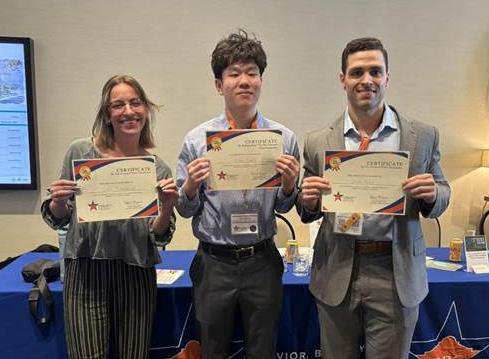
Congratulations to our newly minted Ph.D’s who successfully defended their dissertations in 2025
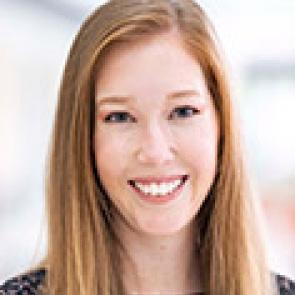

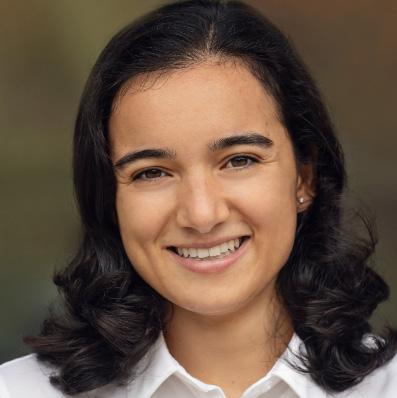
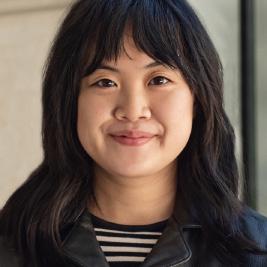
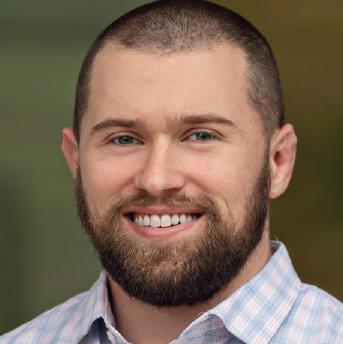
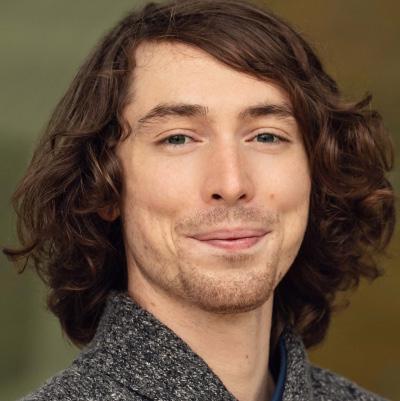
Elyse Frydendall (Scott Lab)
“Human Cytochrome P450 Enzymes in Drug and Fatty Acid Metabolism”
Nathalie Momplaisir (Smrcka Lab)
“Decoding Gai/o Signaling Networks”
Livia Stanger (Holinstat Lab)
“Antithrombotic Therapies: Targeting Novel Approaches to Improve the Treatment of Cardiovascular Disease“
Chante Liu (Satin Lab)
“Novel Mechanisms of Islet Oscillations”
Tyler Bernadyn (Tall Lab)
“The Cleavage-Dependent Tethered Agonism of ADGRG5/ GPR114 and ADGRG3/GPR97”
Nicholas Kolbman (Traynor Lab)
“The Effect of Psilocybin on Cortical Neural Dynamics, Sleep-Wake Behavior, and Persistent Pain in a Rat Model ”

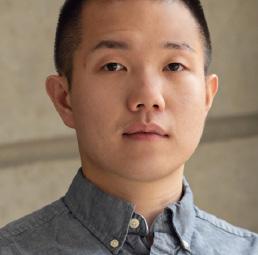
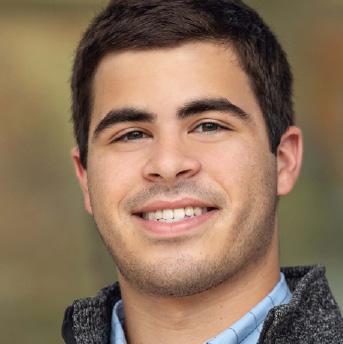
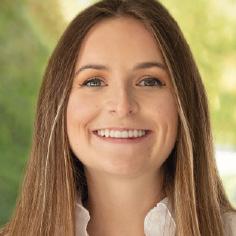
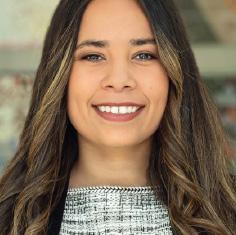
Shreeya Bakshi (Isom Lab)
“Better Retained Than Forgotten: Investigation of SCN1B intron 3 retention and its link to Developmental and Epileptic Encephalopathy “
Jiayu Wang (Brenner Lab)
“Integrative Approaches to Identify and Target Therapeutic Resistance in Head and Neck Squamous Cell Carcinoma”
James Teuber (Brody Lab)
“Regulatory Functions of RAC1 Palmitoylation in Cardiac Hypertrophy and Cardiomyocyte Signaling”
Kassidy Jungles (Rae Lab)
“The Implementation of Combination Therapies for the Treatment of Triple Negative Breast Cancer (TNBC)”
Neikelyn Burgos (Auchus Lab)
“Functional Impact of Clinically Derived and Structure-Based P450 17A1
Mutations on 17,20-Lyase Activity: Insights into Androgen-Driven Disease”
Jessica Whitaker-Fornek, Ph.D. receives research recognition award
Jessica Whitaker-Fornek, Ph.D. (Postdoctoral Fellow, Levitt Lab) has received a research recognition award from the Respiration Section of the American Physiological Society. She was recognized at the Respiration Section banquet at the American Physiological Society Summit in April. Jessica also presented her research on endogenous opioids and breathing development at the Summit.
Congratulations, Jessica!
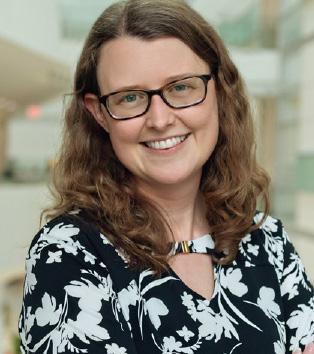
Kassidy Jungles receives the Anna Olcott Smith Fellowship Award
Kassidy Jungles (Pharmacology Ph.D. student, Rae Lab) has recently received the Anna Olcott Smith Fellowship Award. This award is intended to aid women graduate students who show “promise of the development of useful original ideas.”
Congratulations, Kassidy!
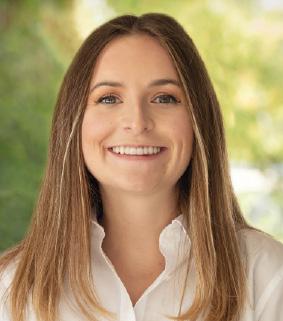
Read more about the award here.

Congratulations to Bo Zhao on receiving the 2025 EBS Research Staff Award!
Please join us in congratulating Bo Zhao, MSA, CRA, Research Administration Manager, on her receipt of the 2025 EBS Research Staff Award.
Congratulations, Bo!

Congratulations to Dr. Liz Peckham on her new appointment as Clinical Assistant Professor at Michigan Medicine!
Please join us in congratulating Dr. Liz Peckham on her new appointment as Clinical Assistant Professor at Michigan Medicine! This new appointment, from Clinical Instructor to Clinical Assistant Professor, reflects Dr. Peckham’s outstanding contributions to our teaching mission, including as Director of our Master’s degree Program.
Congratulations, Liz!
Study reveals how neutrophils secrete DNA to resolve inflammation

A study led by Dr. Carole Parent’s lab reveals how neutrophils secrete DNA to resolve inflammation.
Read more here
Congratulations to Richard Auchus, MD, PhD on receiving the highly prestigious U.S. Department of Veterans Affairs Office of Research and Development Senior Clinician Scientist Investigator (SCSI) Award. Dr. Auchus holds the James A. Shayman and Andrea S. Kevrick Professorship of Translational Medicine and is a Professor of Internal Medicine (in the Division of Metabolism, Endocrinology & Diabetes) and Pharmacology.
The objective of the SCSI Award is to recognize and retain outstanding clinician scientists engaged in VA research, while they continue to provide high-quality, timely clinical care to veterans.
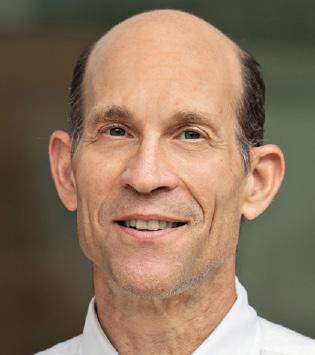
“It is an honor for me to receive the SCSI Award. This recognition reflects the innovation and commitment of the research service at the Ann Arbor VA and its investigators to improve the health of our veterans.”
- Dr. Richard Auchus
This award provides Dr. Auchus with four additional years of funding to continue his research which seeks to understand the terminal steps of cortisol and aldosterone biosynthesis. “The SCSI Award will allow us to explore some high-risk/high-reward projects beyond the original merit renewal proposal,” said Dr. Auchus. “We will also endeavor to add some translational, clinical investigation to our basic biochemical studies of cortisol and aldosterone biosynthesis.”
Dr. Auchus emphasized the importance of the award, noting that the evolving literature indicates even modest overproduction of cortisol and aldosterone can contribute to hypertension, glucose intolerance, mood disorders, and heart disease. “It is crucial to determine whether targeted therapies against these steroids could benefit patients with these co-morbidities,” he stated.
Learn more about Dr. Auchus’ research.
Anthony Garcia was the Molecular Pharmacology Highlighted Trainee Author for February 2025
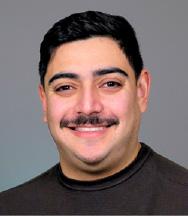
The MolPharm article that earned him the selection as highlighted Trainee Author is titled “High-throughput screening identifies a novel small-molecule modulator of Hsp70 that selectively enhances ubiquitination and degradation of misfolded neuronal NO synthase” and is available here. He hopes that his research will be helpful in further dissecting the role of protein chaperones, especially Hsp70, as a potential therapeutic target for protein misfolding diseases; and the compound they identified from this study will be a useful tool to study other functions of Hsp70 as well.
The solution to death from a fentanyl overdose could lie in its chemical structure
Drs. John Traynor and Jessica Anand have collaborated with their team to identify a molecule that appears to restore normal breathing in a mouse model following a large dose of fentanyl. This implies that the solution to death from a fentanyl overdose could lie in its chemical structure. Read more here.

Jessica Anand wins the Research Faculty Mentoring Award
Jessica Anand, Research Assistant Professor at the Edward F. Domino Research Center within the Pharmacology Department, has won the Research Faculty Mentoring Award!
Dr. Anand has mentored 19 undergraduate and four graduate students since 2014. She also serves on several committees designed to support outreach and training for other pharmacological scientists. Her research focuses on developing fentanyl-derived antagonists as potential antidotes to rescue people who have overdosed on fentanyl.
Congratulations, Dr. Anand!
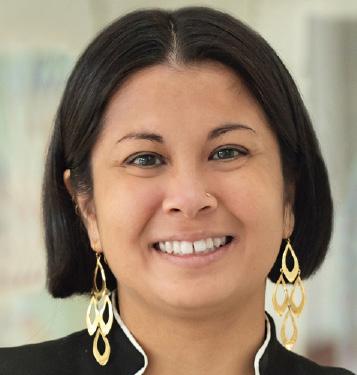
Congratulations to Dr. Rebecca Derman (former Ferarrio Lab member) on her tenure track Assistant Professor position in the Psychology Department of Brooklyn College!
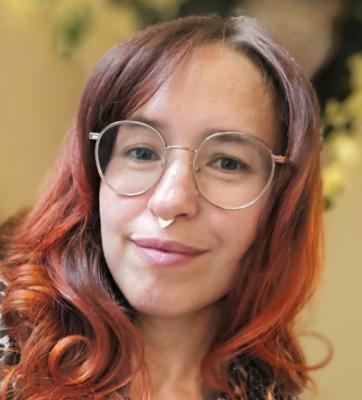
Dr. Derman obtained her PhD from the University of Michigan, where she conducted doctoral research in the laboratory of Dr. Carrie Ferrario. Her work there examined behavioral and mechanistic factors that contribute to obesity vulnerability. For post-doctoral training, she joined the lab of Dr. Matthew Lattal at Oregon Health and Science University where her work examined the behavioral consequences and epigenetic mechanisms of presistent memories. Dr. Derman will begin a tenure track Assistant Professor position in the Psychology Department of Brooklyn College this fall. Her independent research program will combine basic principles of learning theory with molecular biological approaches to investigate the epigenetic mechanisms that drive mental health disorders (including drug addiction and post-traumatic disorder).”
Congratulations to Dr. Eric Jimenez Vazquez on his promotion to Assistant Research Scientist!
Please join us in congratulating Dr. Eric Jimenez Vazquez on his promotion to Assistant Research Scientist! His new appointment will be effective on August 25, 2025.
Congratulations, Eric!
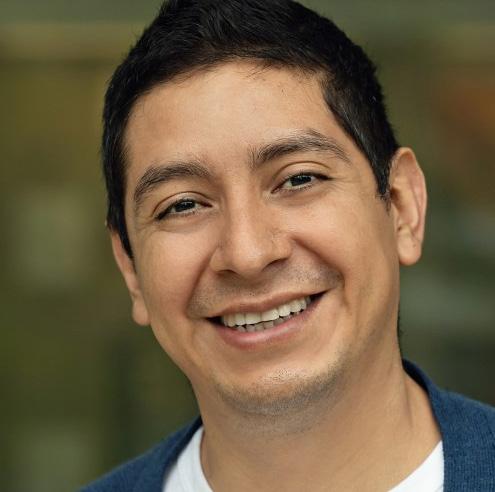
Congratulations to Dr. Carrie Ferrario on her promotion to Full Professor with Tenure!
Please join us in congratulating Dr. Carrie Ferrario on her promotion to Full Professor with Tenure! Her new appointment will be effective on August 25, 2025.
Congratulations, Carrie!
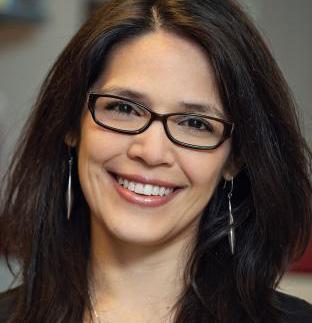
Congratulations to Dr. Mike Holinstat on receiving the 2025 EBS Teaching Award!
Please join us in congratulating Dr. Mike Holinstat, Professor of Pharmacology, Professor of Internal Medicine, Division of Cardiovascular Medicine and Professor of Vascular Surgery, on his receipt o the 2025 EBS Teaching Award.
Congratulations, Mike!
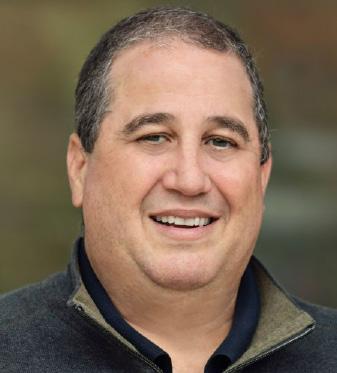
Yanaira Alonso-Caraballo appointed to tenure track Assistant Professor position at the University of Minnesota
Yanaira Alonso-Caraballo, former Ph.D. student in the Ferrario Lab, was just appointed to a tenure track Assistant Professor position at the University of Minnesota.
Congratulations, Yanay!

Monica Chanda and Claire Shudde awarded Rackham Predoctoral Fellowships
Monica Chanda and Claire Shudde (Ph.D. students in the Courtney Lab) were recently awarded the Rackham Predoctoral Fellowship. This fellowship program supports outstanding doctoral students who have achieved candidacy and are actively working on dissertation research and writing. The program supports students working on dissertations that are unusually creative, ambitious, and impactful.
Read more about the Rackham Predoctoral Fellowship here
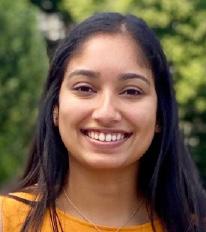
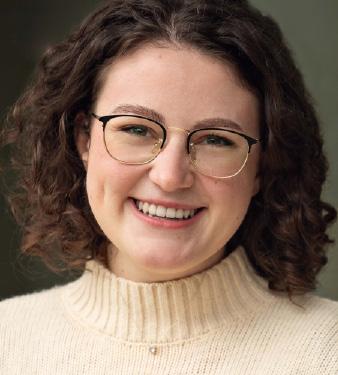
Congratulations, Monica and Claire!
Dr. Julie Finnell Harris is named to the First Cohort of ASPET IDEA Faculty Scholars
Congratulations to Dr. Julie Finnell Harris, previous postdoctoral trainee in the Ferrario Lab and now faculty at the University of Buffalo, on being named to the First Cohort of ASPET IDEA Faculty Scholars!
Read more here
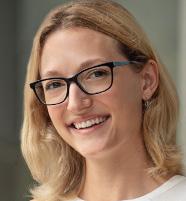
Congratulations to Dr. Paul Jenkins on his appointment as the inaugural Pfizer Upjohn Research Professor in Molecular Pharmacology
Please join us in congratulating Dr. Paul Jenkins as the inaugural Pfizer Upjohn Research Professor in Molecular Pharmacology!
Congratulations, Paul!
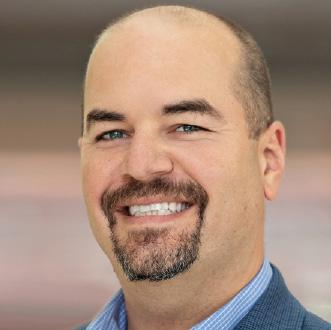
Dr. Kevin Jones receives the Division for Neuropharmacology DEI Recognition Award
Congratulations to Dr. Kevin Jones on receiving the Division for Neuropharmacology DEI Recognition Award!
Read more about the 2025 ASPET Awards here
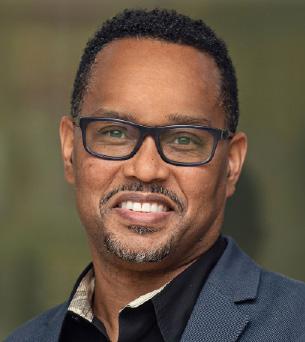
Dr. John Traynor selected as an ASPET fellow!
We are delighted to announce that Dr. John Traynor has been selected as an ASPET fellow.
Congratulations John, this honor is well deserved!
Read more here.

Congratulations to Dr. David Jones on his appointment as the inaugural Pfizer-Upjohn Early Career Research Professor of Pharmacology!
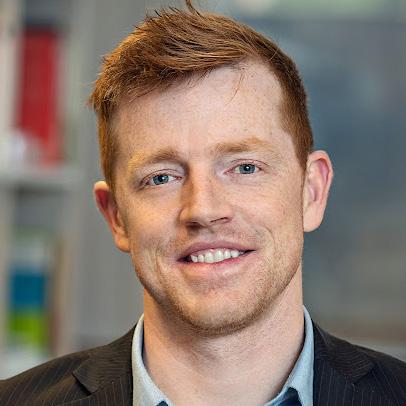
Dr. David Jones has been approved by the University of Michigan Board of Regents as the inaugural Pfizer-Upjohn Early Career Research Professor of Pharmacology. Dr. Jones was selected through a competitive application process that was ranked by our current group of endowed professors in Pharmacology.
Congratulations, David!
Congratulations to the ASPET award winners!
The annual American Society for Pharmacology and Experimental Therapeutics (ASPET) meeting was held in Portland, Oregon in early April.
Congratulations to the winners of the student and postdoc competitions:
Dawn Jessup, Ph.D. - winner, Behavioral Pharmacology, Postdoctoral Poster Award
Shawn Flynn, Ph.D. - runner-up, Behavioral Pharmacology, Postdoctoral Poster Award
Ben Clements, Ph.D. - runner-up, Molecular Pharmacology Division Postdoctoral Showcase
Marie Walicki- 3rd place, Neuropharmacology Graduate Student Poster Award
Congratulations to Dr. Erica Levitt on her appointment as the Dr. Emily Jutkiewicz Memorial Pfizer-Upjohn Research Professor in Translational Pharmacology!
Please join us in congratulating Dr. Erica Levitt as the Dr. Emily Jutkiewicz Memorial PfizerUpjohn Research Professor in Translational Pharmacology!
Congratulations, Erica!
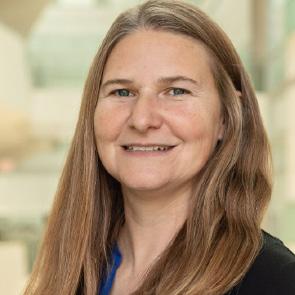
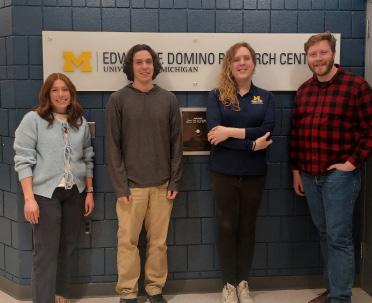
Congratulations to Dr. Manoj Puthenveedu on his appointment as the inaugural Pfizer-Upjohn Research Professor II in Pharmacology!
Please join us in congratulating Dr. Manoj Puthenveedu as the inaugural Pfizer-Upjohn Research Professor II in Pharmacology!
Congratulations, Manoj!
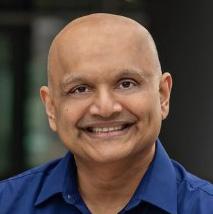
Three pharmacology students worked on the fourth edition of the student-run science and art magazine, EquilibriUM. Claire Shudde was an editor-in-chief, Krista Goerger wrote a short story from the perspective of a platelet traveling around the body, and Oanh Luc wrote and illustrated a comic on science and art sparking curiosity. Read the magazine online HERE.
Congratulations to our Pharmacology MS students who completed their degrees!
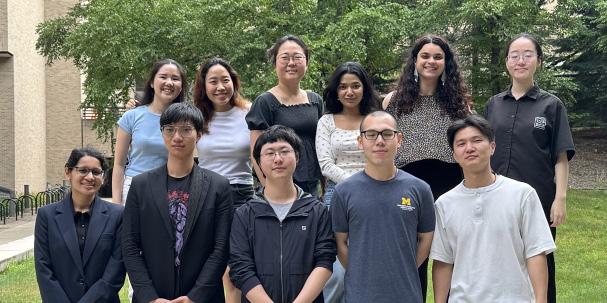
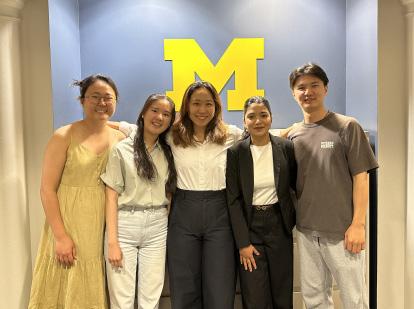
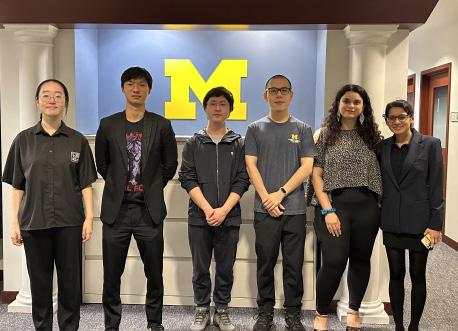
Congratulations to our Pharmacology MS students who completed their degrees in 2025. The culmination of their degree included a written thesis and a series of engaging oral presentations about their research. Congratulations to Arnaz Bharucha, Yiyi Cao, Yena Jin, Sonal Ghodke, Siri Sampagaonkar, An-Yun Teng, Beiyun Wang, Esther Won, Tuozhan Wu, Sam Wu, and Yice Zhang!
On June 11th and September 26th, members from the Department of Pharmacology came together to volunteer their time at Food Gatherers in Ann Arbor.
Food Gatherers is the largest anti-hunger program in Washtenaw County. They collaborate with a network of hunger-relief partners that includes agencies and programs providing direct food assistance through schools, clinics, low-income housing complexes, shelters, counseling programs, and faith-based organizations, as well as programs serving seniors, the disabled or those with mental illness, and substance abuse recovery programs.
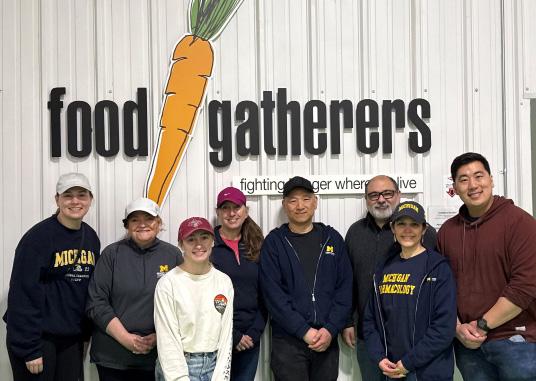
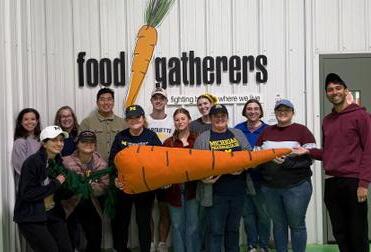
Dr. Kobi Essandoh receives the ASPET Benedict R. Lucchesi Young Scientist Travel Award in Cardiac Pharmacology
Congratulations to Dr. Kobi Essandoh on receiving the Benedict R. Lucchesi Young Scientist Travel Award in Cardiac Pharmacology!
Read more about the 2025 ASPET Awards here
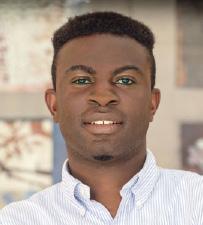
Please join us in welcoming Dr. Meredith Skiba, who joined Michigan Medicine as a Tenure-Track Assistant Professor in the Department of Biological Chemistry and the Department of Phamacology on July 1, 2025.
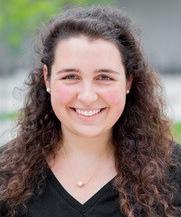
Dr. Skiba is an alumna of the Biological Chemistry PhD Program at Michigan. She recently relocated back to Ann Arbor from Boston, where she completed a postdoctoral fellowship in the Kruse lab at Harvard Medical School. Dr. Skiba plans to establish an interdisciplinary research program studying the molecular function of G protein-coupled receptors. She is a key addition to our dynamic structural biology and signaling communities and will be a wonderful colleague for all. Her laboratory and office space are located on the 5th floor of MSRB III.
Welcome, Dr. Skiba!
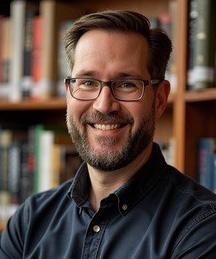
We are pleased to share the news that Dr. Greg Collins, currently Associate Professor of Pharmacology at UT Health, San Antonio, has accepted our offer to join the faculty of the Department of Pharmacology at the University of Michigan. In addition to his primary faculty appointment in Pharmacology, Dr. Collins will become a member of the Department of Anesthesiology, the Michigan Neuroscience Institute, and the Domino Research Center within the Department of Pharmacology.
Welcome, Dr. Collins!
Jessica Whitaker-Fornek, Ph.D. receives Pathway to Independence Award (K99/ R00) from the National Heart, Lung and Blood Institute
Jessica Whitaker-Fornek, Ph.D. (Postdoctoral Fellow, Levitt Lab) was awarded a Pathway to Independence Award (K99/R00) from the National Heart, Lung and Blood Institute. This award will support her in learning research skills and gaining career development training to reach her goal of being an independent investigator. Jessica’s research focuses on endogenous opioids and breathing development.
Congratulations, Jessica!
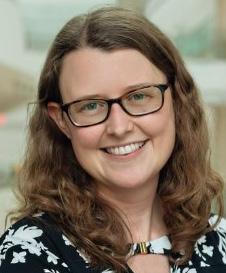
Catherine Demery chosen as JPET highlighted trainee author for July 2025
Catherine Demery (Traynor Lab) was selected as the July 2025 highlighted trainee author for the Journal of Pharmacology and Experimental Therapeutics based on her recent publication, “Xylazine Exacerbates FentanylInduced Respiratory Depression and Bradycardia.” Read more about the publication here.
Congrats, Catherine!
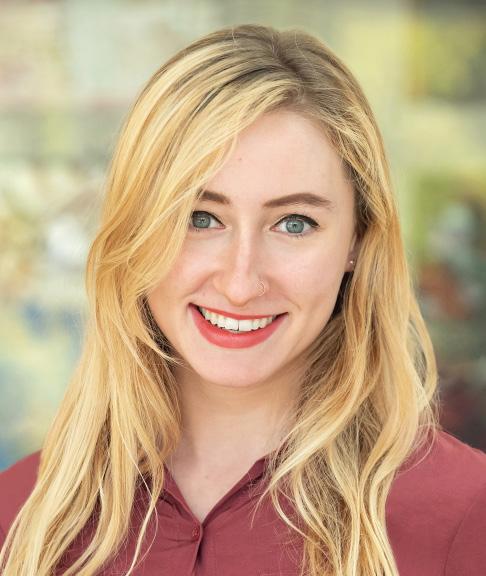
Dr. Jessica Anand receives Sister Mary Ambrosia Mentoring Award from WISE
Dr. Jessica Anand has recently been awarded the Sister Mary Ambrosia Mentoring Award from Women in Science and Engineering (WISE). This award is given to individuals who have served as an exemplar of formal or informal mentorship of STEM students outside of classroom teaching.
Congratulations, Jess!

This July, Wolverine Pathways to Pharmacology welcomed seven high school students for a six-day immersive experience. Organized by graduate students Krista Goerger, Catherine Demery, Krystal Santiago Colon, and Kennedy Kuchinski, the program introduced students to a variety of pharmacology-related topics, including basic principles of pharmacology, antibiotics, treatments for cardiovascular diseases, pharmacogenetics, and neuropharmacology. At the start of the week, only half of the students had heard of pharmacology - most associating it primarily with pharmacists. By the end, all participants reported a stronger understanding of pharmacology and a broader awareness of career opportunities in STEM. The most exciting part was watching their enthusiasm and curiosity for science grow each day. In addition to the core programming, students participated in undergraduate and graduate student panels, as well as a STEM careers panel, thanks to the generous support of volunteers from across the department. The week concluded with engaging student presentations on a drug of their choice, where they explained how it works and its potential side effectsfollowed by a celebratory ice cream party. The organizers are incredibly grateful to everyone who contributed their time and expertise, including previous program leaders, to help inspire the next generation of scientists!
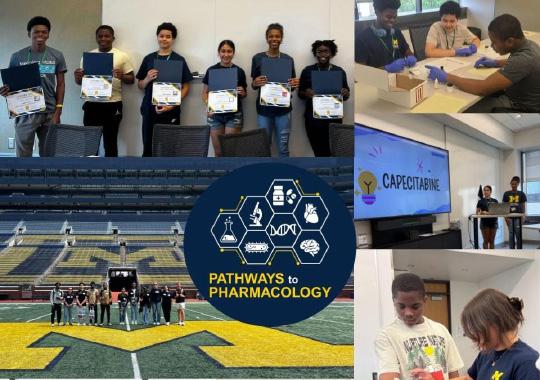
In February, the Department of Pharmacology enjoyed some “Osawaffles” in room 1301. This event has become an annual tradition for students, staff, and faculty to informally chat while waiting for waffles to be cooked. The tradition of Osawaffles was started about 20 years ago upon a chance conversation between Professor Osawa and then student, Cheryse Sankar, about finding a way to unite fellow students and colleagues. The event is one of many that continues to reflect the collegiality of the Department.
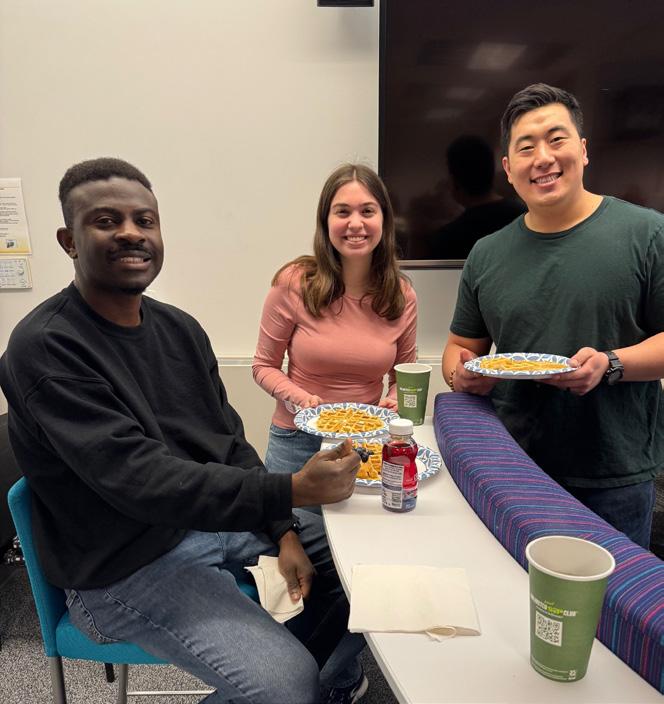
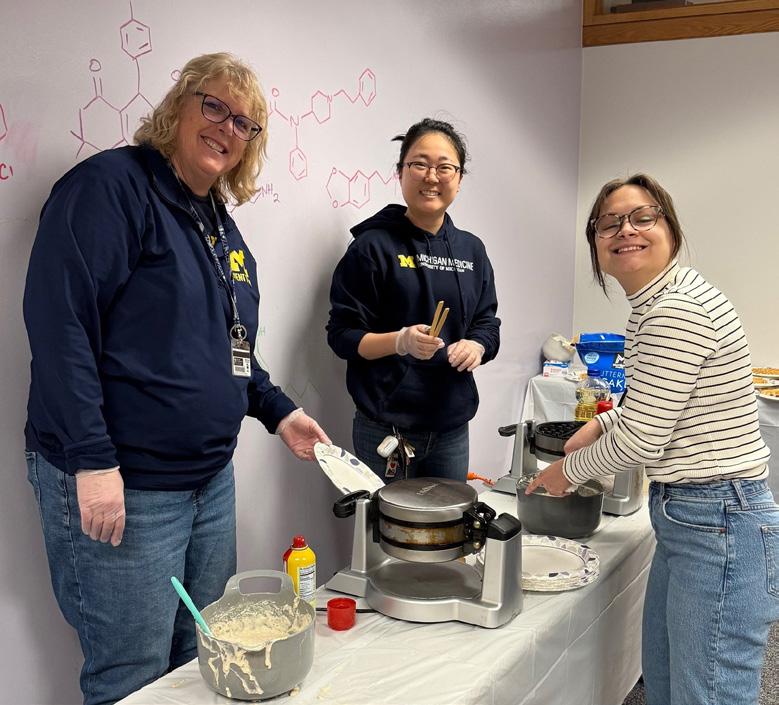
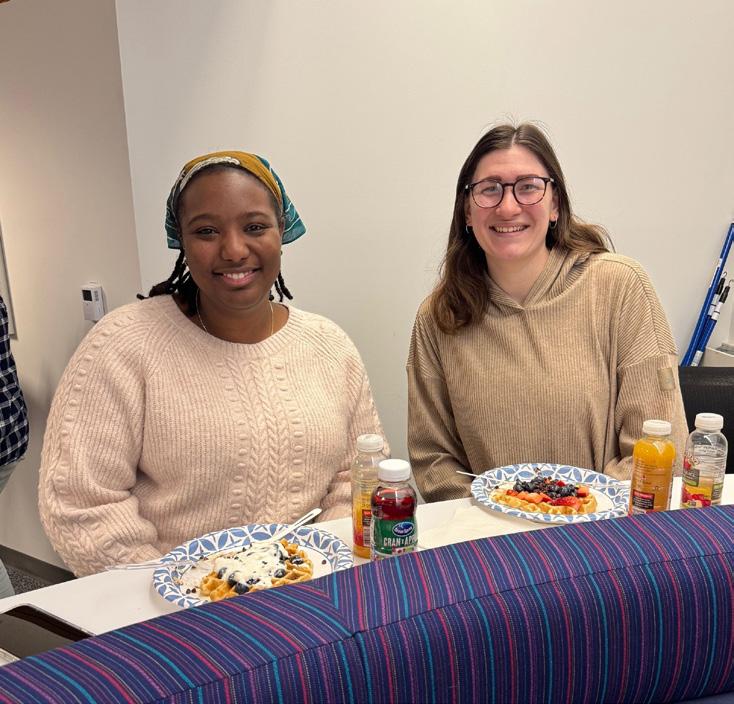
The Department of Pharmacology held its annual Welcome Picnic on Friday, August 1, 2025 at Olson Park. Faculty, staff, and students attended and the picnic was enjoyed by all.
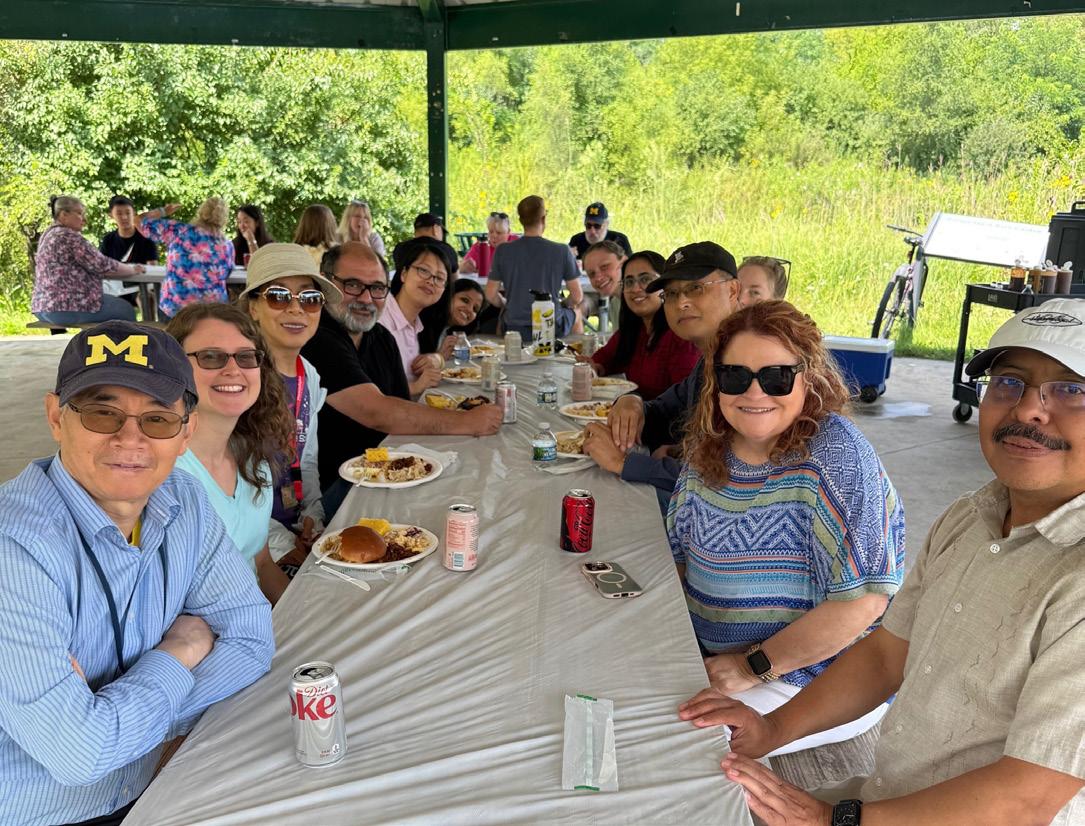
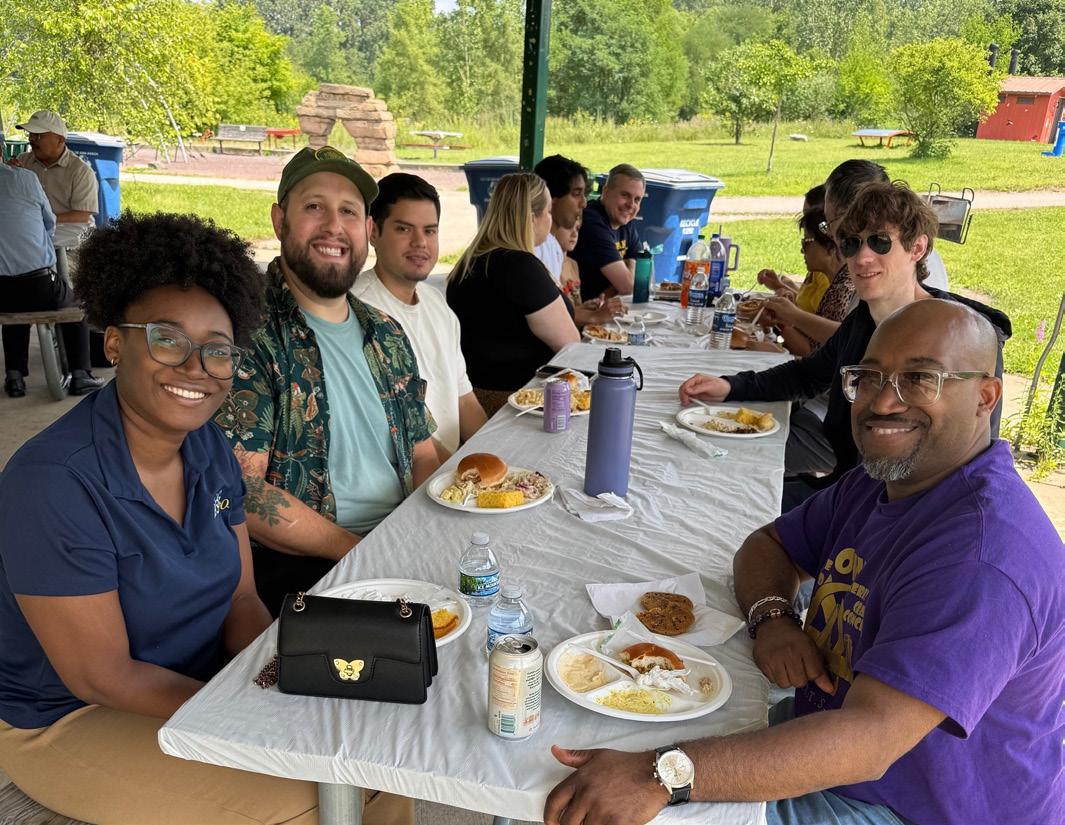
The Department of Pharmacology held its annual retreat at Fox Hills Golf and Banquet Center on September 22, 2025. Faculty, staff, and students participated in many activities, including a jeopardy game (led by Dr. Jorge Iniguez-Lluhi), a poster session, and oral presentations given by the Shaomeng Wang and Ju-Yun Li Research Awardees.

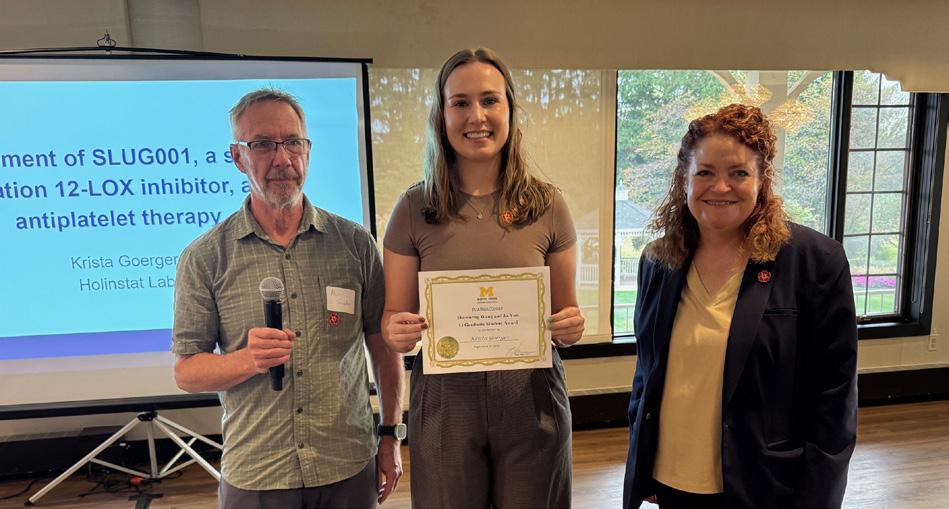
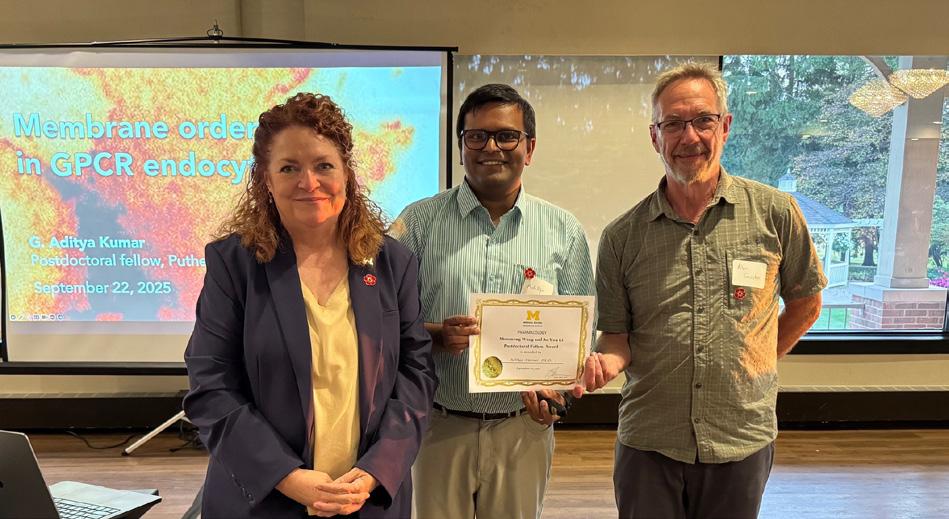
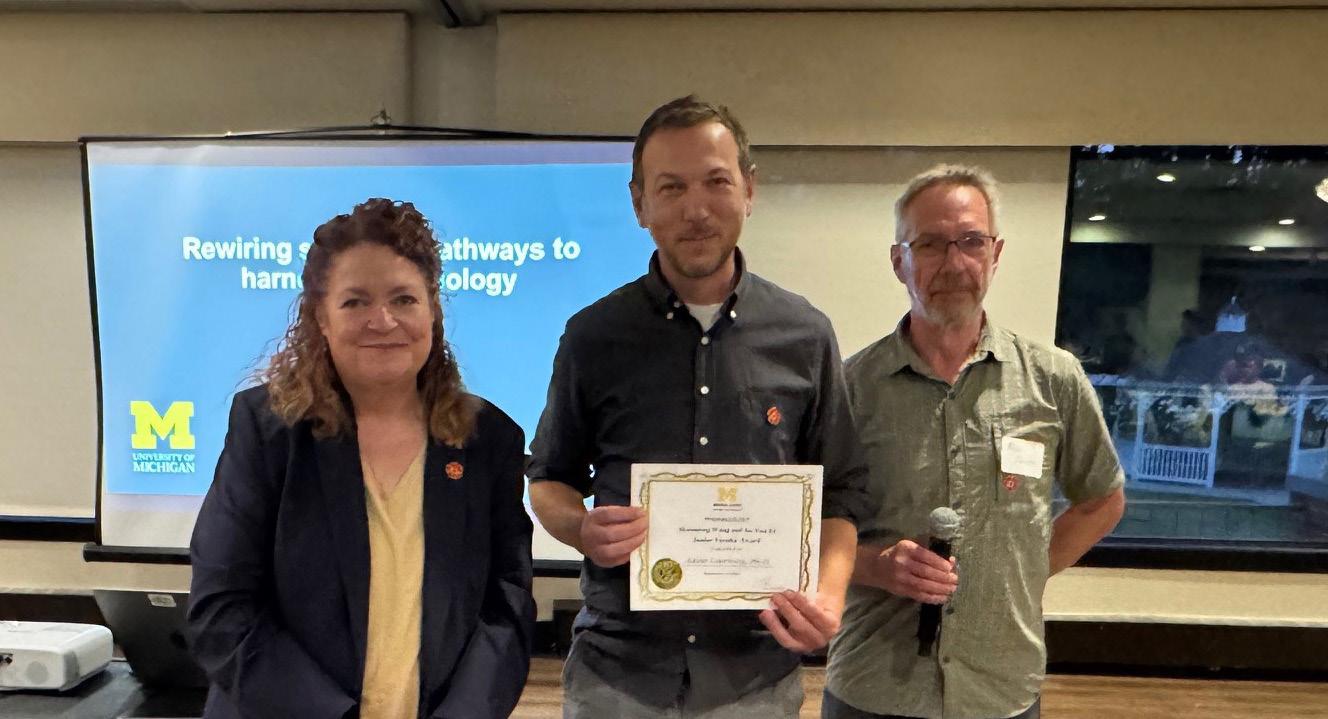
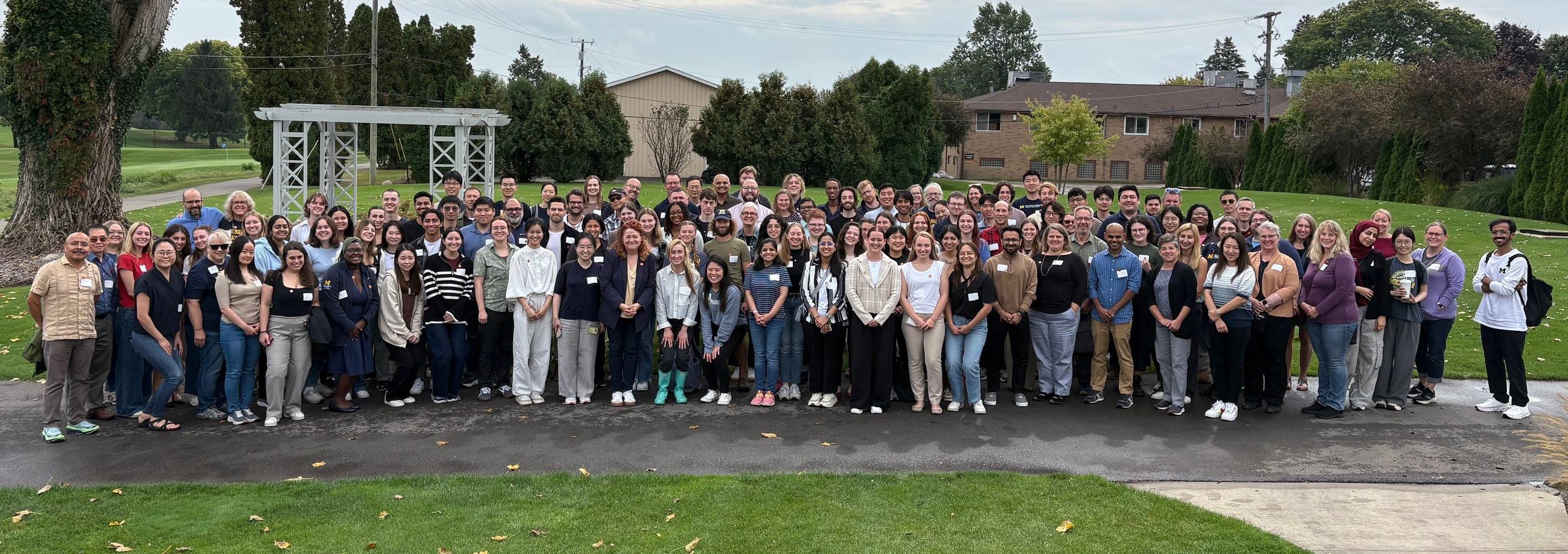
The 2025 Pharmacology in Color Symposium featured research of current trainees, the wisdom of alumni leading wide-ranging careers, and Dr. John Carethers, Vice Chancellor for Health Sciences, Distinguished Professor of Medicine, and Adjunct Professor of Public Health at UC San Diego, as the keynote speaker.
A great day growing our network for all trainees!

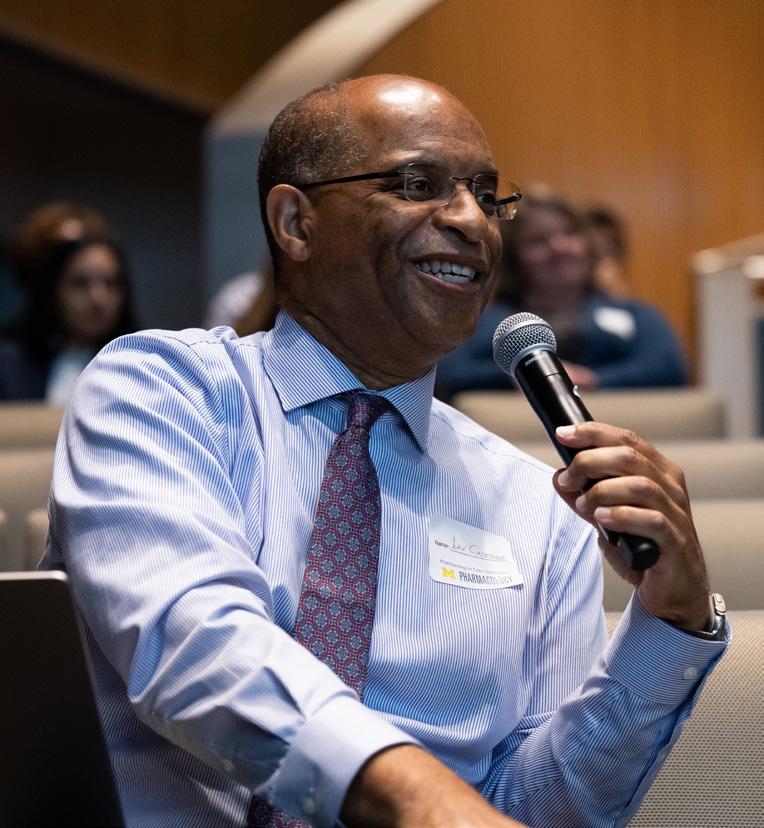
Keynote Lecturer: Dr. John Carethers

The 51st annual Pharmacology Colloquium was hosted at the University of Michigan’s NCRC building on June 13th. The event featured multiple oral presentations, a poster session, as well as a keynote lecture given by Dr. Elizabeth Berry-Kravis. The Colloquium continues to serve as a robust scientific platform for dissemination of new knowledge in Pharmacology, generated by the talented research communities of the Universities of Toledo, Michigan, Wayne State, and Michigan State. Aside from scientific deliberations, this colloquium serves as a forum for meeting trainees and faculty from other schools, learning about each other’s research, and building new friendships and collaborations.
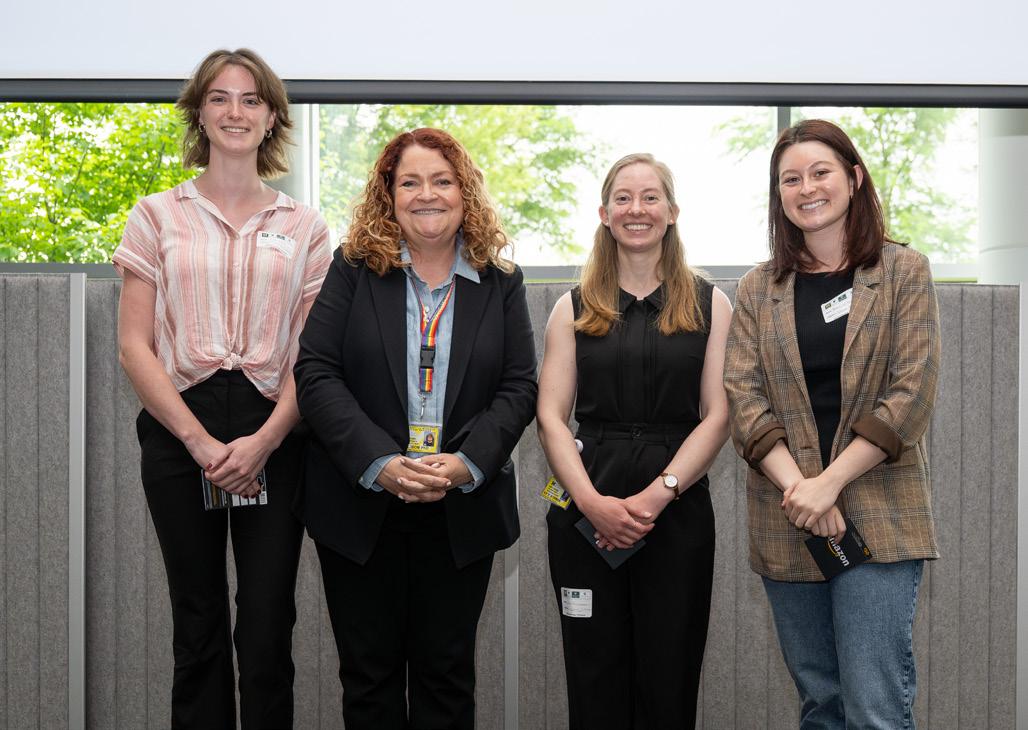

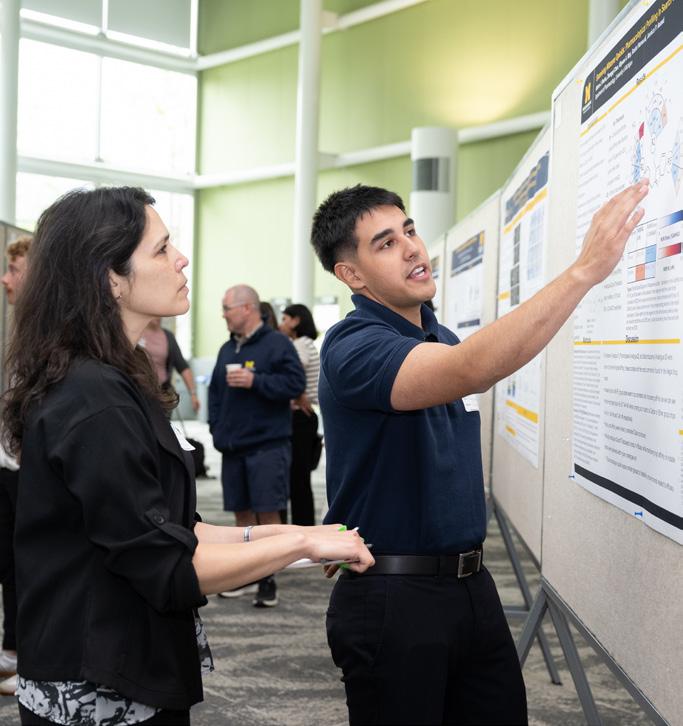

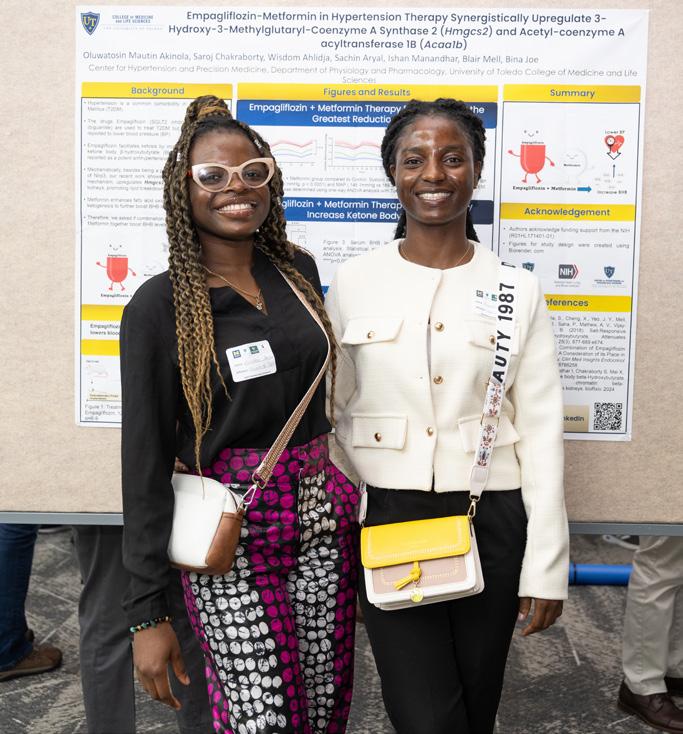

Dr. Luis Martinetti
Luis received his B.S. in Biological Sciences with a Biomedical concentration from University of Texas at El Paso, his M.S. in Biological Sciences from University of Texas at El Paso, and his Ph.D. Neuroscience from Michigan State University. During his studies, he focused on exploring the interactions between sensory and motor mechanisms within the cortex and thalamus, aiming to understand how these systems contribute to essential survival behaviors and what goes wrong in neurological disorders. Currently, he is shifting his focus toward understanding the biology of drug abuse, with a specific focus on neural circuits underlying opioid-induced respiratory depression. He plans to leverage his background to understand the neural mechanisms related to opioid addiction and overdose, ultimately informing strategies to address the pressing public health challenges tied to opioid misuse.
Shawn Flynn received his PhD in Physiology and Pharmacology from The University of Texas Health Science Center at San Antonio where his research focused on in vivo assessments of drug interactions related to opioid misuse and overdose. Previously, Shawn received his BS in Health and Exercise Science and MS in Neuroscience from Wake Forest University. Shawn will be conducting his postdoctoral research in the labs of Dr. John Traynor and Dr. Erica Levitt where he will continue studying the effects of opioids and development of treatments for opioid misuse and overdose.
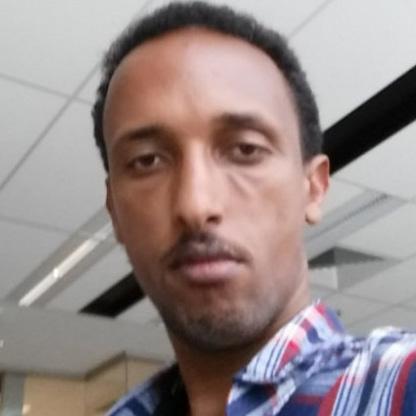

Biniam Mathewos Tebeje, Ph.D., an Ethiopian immunologist, born and raised in Addis Ababa, capital of Ethiopia. He has huge experience in T cell immune response in parasite infections and vaccinations. He was a lecturer while he was in Ethiopia serving the Department of Immunology and Molecular Biology at University of Gondar, Ethiopia. He did his Ph.D. in T cell immune response against schistosomiasis infection and effect of vaccine candidates on the T cell immune response at University of Queensland, Brisbane, Australia. His first postdoc was on mechanisms how inflammasomes affect macrophage’s ability in phagocytosis at the University of Pittsburgh. Studying and having experience in infectious diseases in his B.Sc. and M.Sc. studies and having immunology experience at his entire career let him explore more on host-pathogen interaction. He has a research interest on involving in innovative immunological or vaccinology research that has high impact in promoting health. His second postdoc was on studying the role of pinocytosis in macrophage growth in Dr. Swanson’s lab in the Department of Microbiology and Immunology, University of Michigan since December 2023. He recently joined Dr. Satin’s lab.

Dr. Alisson da Rocha will receive his postdoctoral training in Dr. Ruas’s lab. He holds a Bachelor’s degree in Physical Education and Sports from the University of São Paulo (USP, Brazil), with an exchange experience at Faculty of Human Kinetics (UTL, Portugal). He earned both his Master’s and Ph.D. in Sciences from the Faculty of Medicine of Ribeirao Preto (USP, Brazil). Currently, he is a postdoctoral researcher at the Faculty of Applied Sciences, UNICAMP (Brazil). Dr. da Rocha’s research focuses on the molecular mechanisms underlying excessive exercise-induced depression. Specifically, he is investigating the interplay between interleukin-6 and the kynurenine pathway, with a particular emphasis on the role of the KMO protein. His work aims to contribute to a deeper understanding of the biological factors contributing to mental health challenges in strenuous training by athletes.
Dr. Samantha Thompson joined the Isom Lab as a postdoctoral fellow. She earned her Bachelor of Science in Neuroscience with minors in Chemistry and Psychology from the University of Alabama at Birmingham in 2018. She completed her Ph.D. in Neuroscience at Baylor College of Medicine in May 2025, where her dissertation focused on identifying dynamic transcriptional alterations in pro-epileptic genes within the thalamocortical circuit of a mouse model of childhood absence epilepsy. Broadly, her research interests are the molecular and circuit-level mechanisms underlying neuronal hyperexcitability in epilepsy. In the Isom Lab, Dr. Thompson is investigating the mechanisms that govern the spatial expression of sodium channel subunits in mouse models of Dravet syndrome.
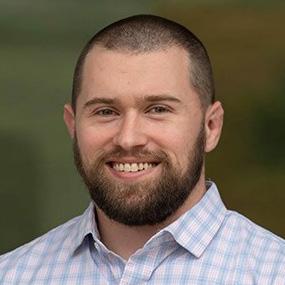
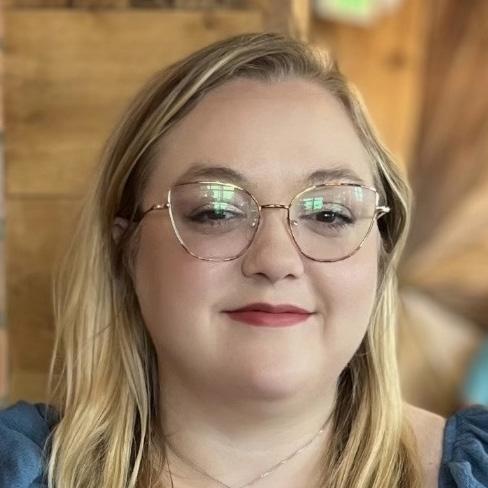
Dr. Tyler Bernadyn will be receiving postdoctoral training in Dr. Gregory Tall’s lab. Dr. Bernadyn completed his Bachelor’s degree in Biochemistry at Albright College in Pennsylvania where his research examined the effects of stress and decision-making capabilities. He then received a Master’s degree in Drug Discovery and Development from Drexel University College of Medicine where his research focused on the regulation of G protein coupled receptor (GPCR) signaling in a variety of cardiomyopathies. He completed his Ph.D. in Pharmacology with Dr. Tall in May of 2025 where he investigated the cleavage-dependent activation of the Adhesion GPCRs, GPR97 and GPR114 and their importance in immune cell function. In the Tall lab, he is going to continue studying the role of GPR97 in neutrophil migration. Outside of research, Dr. Bernadyn enjoys martial arts, firearms training, going to the gym with his wife, and relaxing with his dogs. Dr. Bernadyn’s goal is to pursue a biochemist/physiologist position with the United States Army.

Dr. Rowan Calkins will be receiving postdoctoral training in Dr. Ferrario’s lab. She completed her bachelor’s decree in Agricultural and Medical Biotechnology at the University of Kentucky in 2018. Throughout her undergraduate career, Dr. Calkins completed internships in labs studying nutrigenomics, epigenetics, plant pathophysiology, and finally traumatic brain injury following graduation. She then worked in the lab of Dr. Suzanne Appleyard at Washington State University in the Department of Integrative Physiology and Neuroscience, graduating with her Ph. D. in 2025. Her dissertation work elucidated the effects of the anorexigenic peptide Neuropeptide Y (NPY), as well as high fat, high sugar diet consumption, on the electrophysiological activity of neuron subpopulations within the Nucleus of the Solitary Tract (NTS). In the Ferrario lab, Dr. Calkins is examining the mechanisms that facilitate increased expression of calcium-permeable AMPA receptors on medium spiny neurons (MSNs) in the nucleus accumbens (NAc) following removal of rewarding stimuli or acute NMDA receptor inhibition. She hopes to contribute to the understanding of NAc MSN plasticity and circuitry in both male and female animal models. In her free time, Rowan enjoys running a DND campaign, traveling, cooking, and gardening.
Dr. Shreeya Bakshi earned her bachelor’s degree in Biology from Oakland University before joining the University of Michigan’s Pharmacology PhD program in 2019. She completed her dissertation in March 2025 under the mentorship of Dr. Lori Isom, where her thesis work investigated developmental and epileptic encephalopathies linked to variants in SCN1B, the gene encoding the β1 subunit of voltage-gated sodium channels. Specifically, she studied a splice isoform arising from intron retention in SCN1B and characterized its distinct properties compared to the canonical isoform. She now continues her work in the Department of Pharmacology and is co-mentored by Dr. Lori Isom and Dr. Michelle Hastings. Her current research investigates splicing mechanisms in voltage-gated sodium channel genes that can be modulated by splice-switching antisense oligonucleotides to evaluate their therapeutic potential in developmental and epileptic encephalopathies.
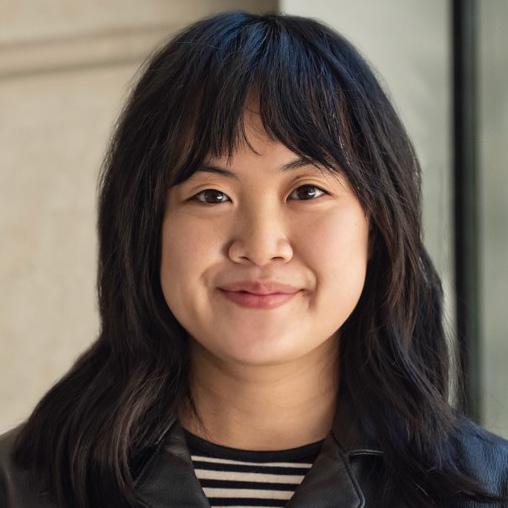
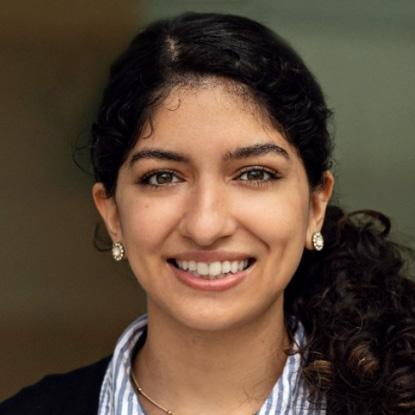
Dr. Chanté Liu will be receiving postdoctoral training in the Satin Lab. Dr. Liu received her bachelor’s degree in Biochemistry and Molecular Biology from Michigan State University. After her bachelor’s, she joined the Pharmacology department at the University of Michigan where she worked in Dr. Lori Isom’s lab for three years as a research technician. She stayed in the department and completed her master’s in Dr. Arun Anatharam’s lab, and then completed her Ph.D. in Dr. Les Satin’s lab. Her research is focused on studying novel mechanisms of islet oscillations, with a primary focus on understanding mechanisms of basal oscillations, and understanding how islet oscillations are altered in type 2 diabetes. Outside of the lab she enjoys rock climbing, sewing, reading, running, and spending time with her two cats.
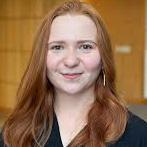
Dr. Elizaveta Mangutov will be receiving postdoctoral training in Dr. Puthenveedu’s lab. Dr. Mangutov completed her bachelor’s degree in Molecular and Cellular Biology and Chemistry at the University of Illinois at Urbana-Champaign in 2019. She then began her Ph.D. in Neuroscience with Dr. Amynah Pradhan at the University of Illinois at Chicago in 2019 and moved with her lab to Washington University in St. Louis in 2022. She completed her Ph.D. in Neuroscience through the Division of Biology & Biomedical Sciences (DBBS) at WashU in 2025. Dr. Mangutov’s research focuses on G-protein coupled receptor (GPCR) signaling. During her Ph.D., she investigated the relationship between opioid-induced hyperalgesia and migraine, exploring the delta opioid receptor and the pituitary adenylate cyclase activating polypeptide (PACAP) system as potential therapeutic targets. In the Puthenveedu lab, she is studying the regulation of opioid GPCR signaling and subcellular organization. Her goal is to characterize endogenous opioid signaling with high spatial and temporal resolution to better understand its physiological and therapeutic implications.
Dr. Chunguang Guo completed his bachelor’s degree in Veterinary Medicine at Jilin University in 2019. He completed his Ph.D. in Molecular Medicine at Peking University in 2024. He will be receiving postdoctoral training in Dr. Ruas’s lab. His research will focus on identifying novel myokines that can activate fibro-adipogenic progenitors, satellite cells, or other potential cell types to enhance muscle regeneration. Through this work, he aims to contribute to the understanding of muscle repair mechanisms and potential therapeutic applications.
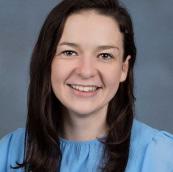
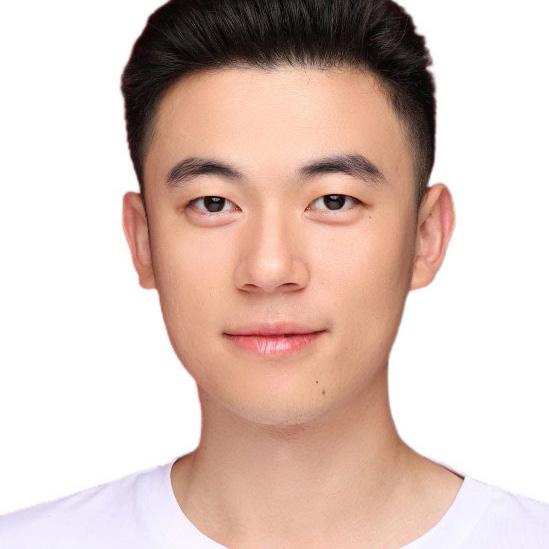
Dr. Melody Iacino will be receiving postdoctoral training in Dr. Ferrario’s lab. She earned a Bachelor of Science in Biology with a minor in Chemistry at Winthrop University in 2020. She then completed her Ph.D. in Physiology and Pharmacology at Wake Forest University in February of 2025. Her dissertation work examined the role of cocaine self-administration access patterns in differentially modulating diurnal rhythms of dopamine and acetylcholine release in the nucleus accumbens core (NAc). More broadly, Dr. Iacino is interested in studying the overlap between substance use disorders and food overconsumption to better understand the neurobiological mechanisms that contribute to drug addiction and obesity. In the Ferrario lab, she is looking forward to examining how insulin affects NAc glutamatergic transmission and its regulation by endogenous opioids. Outside of research, Dr. Iacino enjoys exploring nature, volunteering with animal rescues, and competing in agility with her dog.
Please welcome our new M.S. and Ph.D. students to UM Pharmacology!
Welcome to our 2022 Incoming Masters Students! Welcome to our 2025 Incoming M.S. Students!
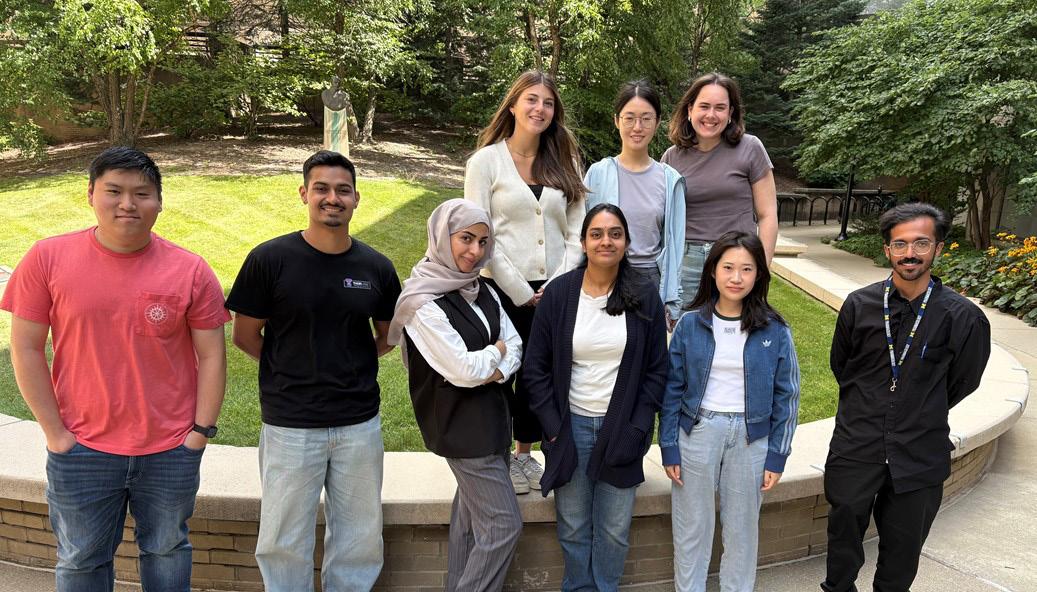
Welcome to our 2022 Incoming Masters Students! Welcome to our 2025 Incoming Ph.D. Students!
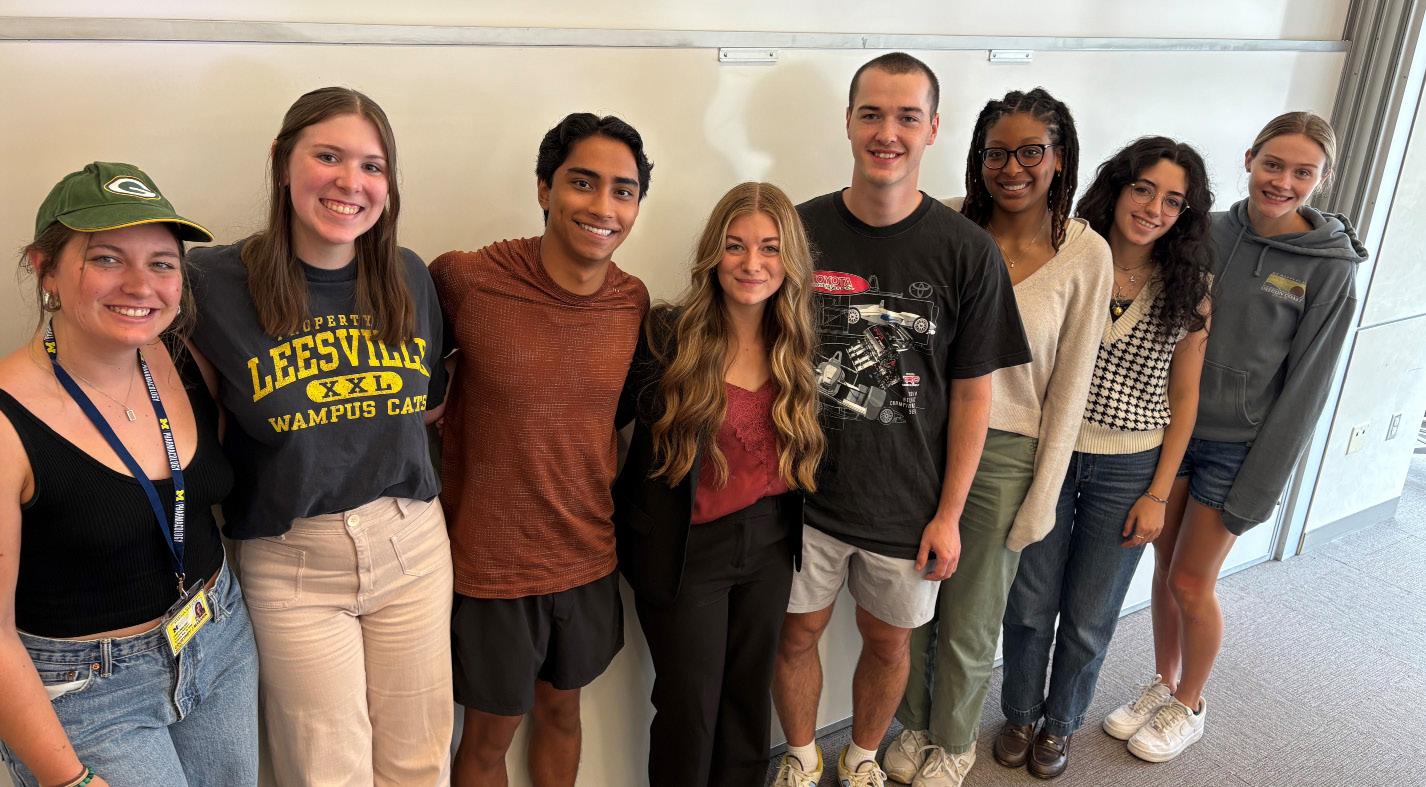
The Courtney Lab at the University of Michigan continues to make significant strides in elucidating the specialized signal transduction pathways found in T cells. Our group has developed a new platform activate intracellular proteins in T cells. These new findings were published in Science Immunology this May and describe how STAT5 can be activated in a cytokine-independent manner to prevent T cell suppression in tumors (PMID: 40408430). In addition, members of the Courtney Lab showcased their work at the 2025 American Association of Immunologists (AAI) Annual National Meeting held in Honolulu, Hawaii, where Zehui Gu contributed was a recipient of an AAI Abstract Award and an invited speaker. The lab also celebrates several individual achievements and transitions among its members. Christina Zheng graduated with her PhD in 2024, marking the successful culmination of her graduate studies in the Courtney Lab. Nina Castaneda, who joined as a PREP Scholar last year, has been accepted into the Immunology PhD Training Program at U-M. Yena Jin completed her MS in Pharmacology in 2025 and will continue in the lab as a Research Specialist working to translate our strategy to activate STAT5 to human T cells. We have also welcomed a new student to the lab from the Cancer Biology Program, Alejandra Rosario Crespo. Courtney Lab members have also been recognized for their outstanding research and potential. Monica Chanda has been awarded both a Rackham Predoctoral Fellowship and the highly competitive NCI F31 Predoctoral Fellowship, while Claire Shudde received a Rackham Predoctoral Fellowship. Adam Courtney was recognized with the Shaomeng Wang and Yu-Jun Li Pharmacology Junior Faculty Research Award at the Pharmacology Retreat.
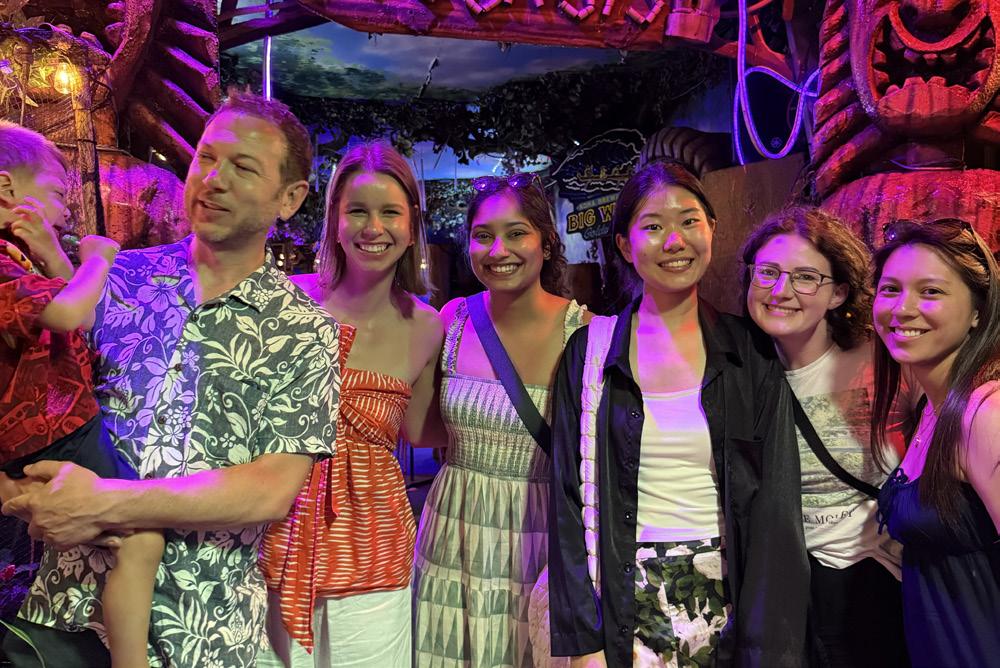
If you would like your lab featured in a future newsletter, or if there is a specific lab you’d like to read about, please email your request to Katie Hildebrand (kkovalic@med.umich.edu).
The Puthenveedu Lab studies the molecular basis of drug addiction and pain. We focus on the exciting and relatively new idea that the effect of any given drug depends not just on the drug and the receptor, but also on where in the cell receptors are activated. We use high-resolution microscopy, fluorescent biosensors, and molecular genetics to directly visualize and manipulate receptor signaling at specific locations inside the cell. We have shown that, by actively moving receptors between cellular membranes, we can improve the efficacy of opioids and reduce the development of acute tolerance to morphine in animal models of pain. We are pursuing molecular studies to understand how opioid receptors are localized to specific locations, and developing platforms for high-throughput genetic and drug screening based on receptor location as a readout. The goal is to identify targets, develop drugs, manipulate receptor location, and precisely control receptor signaling patterns from different locations. This is a brand-new approach receptor pharmacology and drug development. Newer projects in the lab extend this potentially transformative approach to address GPCR signaling in heart disease and cancer immunology.
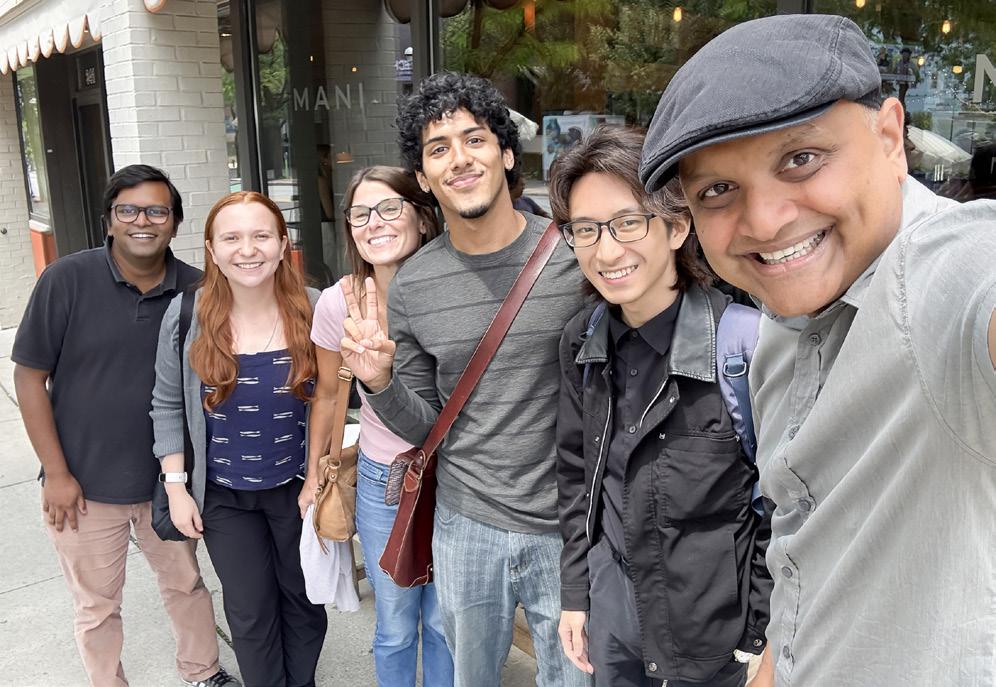
The Smrcka Lab is interested in understanding and manipulating the cellular signal transduction mechanisms downstream of GPCRs in the context of physiology and disease. One major area of emphasis is studying the interaction networks of GPCR signaling pathways in cardiac myocytes that regulate the development of heart failure. Chronic elevation of hormones including epinephrine and angiotensin II due to hypertension or a heart attack leads to chronic over activation of GPCRs in cardiac myocytes. This leads to activation of myocyte pathways that are maladaptive resulting in aberrant myocyte growth (cardiac hypertrophy) and ultimate cardiac failure. We have discovered new signaling pathways downstream of epinephrine and angiotensin that promote cardiac hypertrophy that we can manipulate pharmacologically to prevent this process and ultimately, heart failure. Another focus is on more basic studies using proteomics to discover new signaling pathways downstream of GPCRs and validating these using biochemical and cell biological methods. Defining new pathways downstream of GPCRs has the potential to have a broad impact on the field and our understanding of how drugs that act at GPCRs regulate a variety of pathophysiological conditions including heart failure, neurodevelopment and cancer.

What sport did you play and where did you play?
- I played polo at Michigan State University, and was captain of the women’s varsity team during my senior year.
What or who inspired you to become a college athlete?
- My sister, who is two years older than me, was on the team first - normally I’d hate to admit to following in her footsteps, but I’m so glad that I did! We had a lot of fun playing together, and now share a lot of the same lifelong friends and teammates. Is there a moment or accomplishment that most influenced or shaped who you are today?
- There are four quarters - called chukkers - during a polo match. In college, each team brings a “string” of horses to the match, and both teams play each other’s horses for two of the four chukkers. This means that both teams get to ride the same horses and helps level the playing field. However, it also means that you play the game on an unfamiliar horse, using someone else’s equipment, for half of each game! Learning to be comfortable jumping into a match on an unfamiliar horse has made me bolder and braver in everything I do, and is my proudest accomplishment from my time on the team.
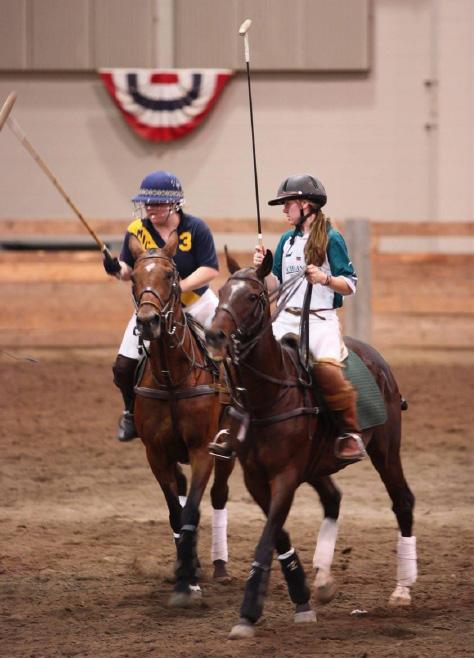
What lessons or skills did you learn from being a college athlete that are still helpful to you as a scientists, educator, or mentor?
- The polo team at MSU operates as a 501(c)3 non-profit and owns its own horses, truck/ trailer, equipment, etc., largely supported by an incredible alumni network, professional sponsors, and the United States Polo Association. As president of the non-profit executive board and varsity captain, I learned a lot of management skills that still serve me today.
What sport did you play and where did you play?
- I played 3 years of Women’s Tennis for Ohio Northern University.
What or who inspired you to become a college athlete?
- I was essentially dared to play by my college roommate. We were doubles partners.
What lessons or skills did you learn from being a college athlete that are still helpful to you as a scientists, educator, or mentor?
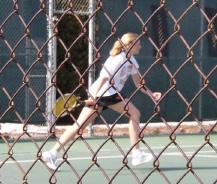
- I had no tennis experience, so I learned that I could do anything with enough determination, persistence and practice! I went from no experience to being undefeated in my final season.
Joy Colquitt, Research Laboratory Specialist
What sport did you play and where did you play?
- I was a swimmer at The Evergreen State College in Olympia, WA.
What or who inspired you to become a college athlete?
- I was inspired by my ambitious teammates (high school teammates of mine went on to swim at USC, Notre Dame, UT Austin, and UNM) and larger than life club coach, Leo Cancellare. Additionally, the financial assistance I received from swimming allowed me to attend an out of state school … and I desperately wanted out of Texas.
Is there a moment or accomplishment that most influenced or shaped who you are today?
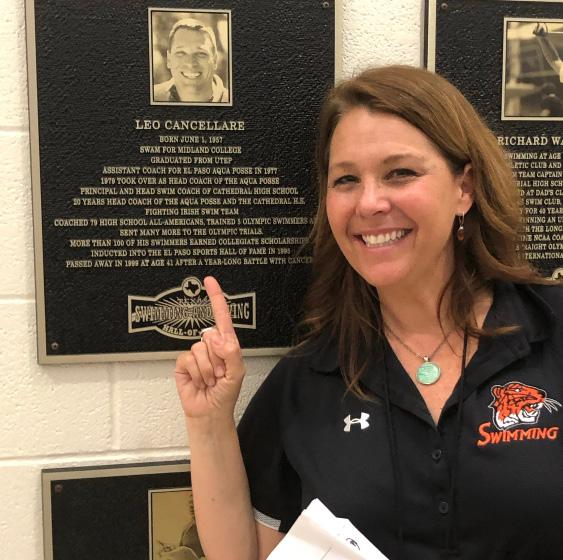
- I was voted “most spirited” my freshman year and served as Team Captain my remaining two years (I graduated college in 3 years). These experiences taught me how to motivate others and lead by example, characteristics I have carried with me throughout my adult life.
What lessons or skills did you learn from being a college athlete that are still helpful to you as a scientists, educator, or mentor?
- Swimming taught me that hard work, dedication, and attention to detail pays off. I also learned that “being coachable” is extremely important in life. There is so much still to learn, even when at the top of
What sport did you play and where did you play?
- Collegiate Cycling on the Bucknell University cycling team.
What or who inspired you to become a college athlete?
- I always enjoyed cycling and sought out local races as a teenage sneaker rider. I had my bike in the freshman dorm and the future president of the Bucknell cycling team and national junior level rider happened to visit one evening, saw it, and recruited me to the team.
Is there a moment or accomplishment that most influenced or shaped who you are today?
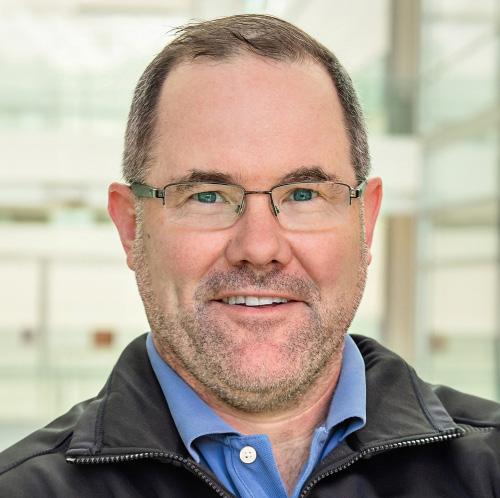
- Our best team moment was assembling our best 4 riders (out of 6 total) to win the East Coast Collegiate Cycling Championship team time trial against schools like Penn State who had 100s of riders to choose from.
What lessons or skills did you learn from being a college athlete that are still helpful to you as a scientists, educator, or mentor?
- One thing I found about bike racing, is even if you get behind early in a race, just keep going. Sometimes the weather changes, others drop out or tire out, and I could come back and make a spot on the prize list. So, as a mentor, I try to help people with perseverance.
What sport did you play and where did you play?
- I played soccer at Grinnell College located in Grinnell, Iowa. On the team I was a center-mid or defensive center-mid to be more specific.
What or who inspired you to become a college athlete?
- Most of my inspiration to play college soccer came from my enjoyment of direct competition and the relationships I built through it. I started when I was 6 or 7 and many of my closest friends, to this day, were high school teammates. It felt natural to continue playing to maintain a competitive outlet while meeting more amazing people. It also opened up my college choices letting me attend somewhere I was very excited about.
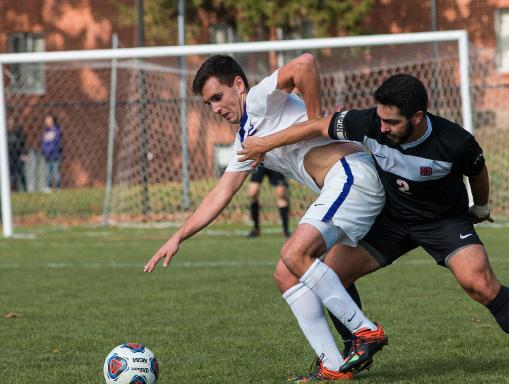
Is there a moment or accomplishment that most influenced or shaped who you are today?
- Soccer has played a huge influence in how much pride I take in doing little things for teams that build up to a bigger picture or outcome. Small movements in soccer add up to correct positioning and decision-making where one lapse can lose you a game. One moment specifically that represents this is a win we had in our conference semi-finals. We were playing down a man 10 vs 11 3 minutes into that game, but every individual committed to succeeding at the small things and trusting everyone else would do the same. I try to maintain that focus on contributing in both big and small ways day-to-day and hope to never lose that.
What lessons or skills did you learn from being a college athlete that are still helpful to you as a scientists, educator, or mentor?
- There’s one thing I would say was the most important takeaway. Through soccer I gained a lot experience persevering through adversity and failure. Science and grad school are full of failures for many of us. I strongly believe that the years of pushing through surgery, injuries, fitness tests, travel, wins, and losses helped prepare me to keep going through the million personal and experimental setbacks and roadblocks I’ve hit over the last few years.
What sport did you play and where did you play?
- I competed in women’s gymnastics at Oregon State University.
What or who inspired you to become a college athlete?
- Watching the “big girls” from my club gym as a little girl compete in college inspired me to follow in their footsteps.
Is there a moment or accomplishment that most influenced or shaped who you are today?
- Competing for OSU for the first time and realizing I could “make it” as a college athlete helped me gain the confidence to continue pursuing big dreams and has helped shape me into who I am today.
What lessons or skills did you learn from being a college athlete that are still helpful to you as a scientists, educator, or mentor?
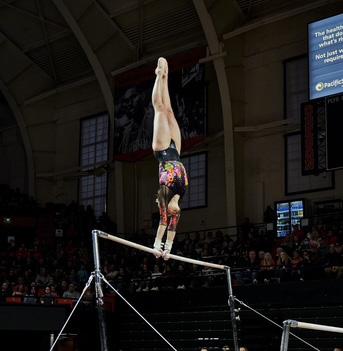
- My time as a gymnast taught me what determination and perseverance looked like, which are two skills that I think will help me today as a PhD student.
Avery Campbell, PhD Student
What sport did you play and where did you play?
- I played soccer and was a sprinter for the track and field team at Albion College in Albion, MI.
What or who inspired you to become a college athlete?
- I have been involved in athletics since I was 4 years old, so being a college athlete had always been a goal of mine. My biggest inspirations were (and still are) my parents. They were the ones to go to every game, practice, meet, and banquet while I was growing up. In addition, my high school coaches and teammates had a significant impact on growth as a student athlete over the years. In all, the endless support and encouragement that I received from the aforementioned individuals gave me the confidence and desire to compete at the ‘next level’.
Is there a moment or accomplishment that most influenced or shaped who you are today?
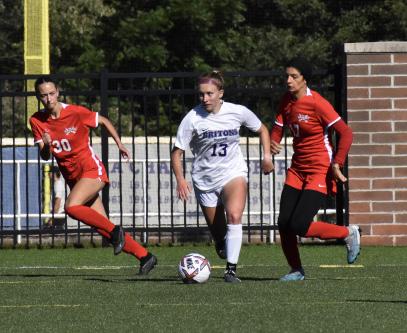
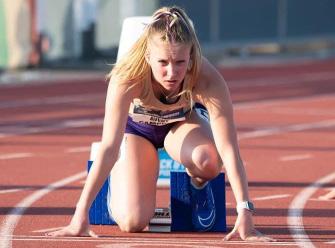
- I would say the entirety of my senior year really shaped me into who I am today. Unfortunately, in the very beginning of my junior year I was injured such that I was not able to compete to the best of my ability. Therefore, in the off season before my senior year I was incredibly motivated to get healthy in preparation for my last year of sports. Coming back from an injury taught me resilience, optimism, and the power of a strong work ethic, which have made me into the person I am today. These lessons have assisted me not only in sports, but also in my personal life, at work, and in school. Injuries are never fun, but I am now a strong believer that set backs of any kind are a real opportunity for personal growth. I will also say that my senior year ended up being my best year of competition yet. My year included scoring more goals in a single season than I ever had, becoming a 4-time All-American sprinter, and receiving the ‘Top 30 Women of the Year’ honor from the NCAA.
What lessons or skills did you learn from being a college athlete that are still helpful to you as a scientists, educator, or mentor?
- I strongly believe that my athletic career prepared me for my science journey. Sports taught me resiliency, which I believe is one of the most important skills that sports have given me. There will be days where your experiment fails, or you don’t understand a result, or you have a fast-approaching deadline, and it can be frustrating. It is times like these that I believe resilience is of upmost importance, and I thank sports for teaching me this lesson. I will also say that being a part of a team has taught me communication skills, time management skills, and empathy. My friends and I always say, “science is a team sport”, meaning the best science often arises when people work together to balance each other’s strengths and weaknesses. Therefore, when working in the lab space, I treat my lab mates as a team and I believe this allows for us to help each other progress as scientists. These teamwork skills are also extremely helpful when mentoring others. I had a lot of practice mentoring other athletes when I served as a captain for both of my sports teams at Albion. Those experiences helped me realize that I can learn an equal amount from my mentees as they can learn from me. All of that to say, that I feel prepared and excited to mentor students in the future (as a first year I have yet to have the opportunity to mentor an aspiring scientist, but it is only a matter of time now!). Overall, I would not be the person or scientist I am today without my student athlete experience.
What sport did you play and where did you play?
- I ran XC and Women’s Track at Eastern Michigan in 1976 and 1977. I was a member of the first Women’s XC team at EMU (Title IX). I did not play sports in HS. We won the Wolverine Invitational in 1976 and also went to AIW Nationals in Madison, Wisconsin.
What or who inspired you to become a college athlete?
- I was in a gym class and was one of the fastest women and the XC Captain asked me to join the team.
Is there a moment or accomplishment that most influenced or shaped who you are today?
- It taught me that you never know what you can accomplish, and you are going to feel bad after a race regardless, so you might as well go for it.
What lessons or skills did you learn from being a college athlete that are still helpful to you as a scientists, educator, or mentor?
- Don’t give up, keep pushing.
What sport did you play and where did you play?
- I played rugby at the University of Wisconsin La Crosse
What or who inspired you to become a college athlete?
- I was inspired by my friends. I played sports in high school but had never played rugby before college. I had friends who were interested in joining so I showed up at practice on a whim one day and never looked back.
Is there a moment or accomplishment that most influenced or shaped who you are today?
- During season one year I ended up with a concussion. While I was out injured, though I wanted nothing more than to run around on the pitch, I learned the joy in being on the sidelines, cheering on my teammates. This helped me to not always compare myself to others and being their biggest cheerleader throughout life.
What lessons or skills did you learn from being a college athlete that are still helpful to you as a scientists, educator, or mentor?
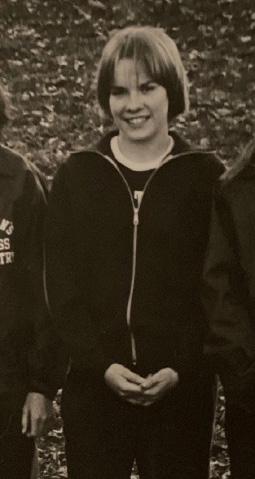
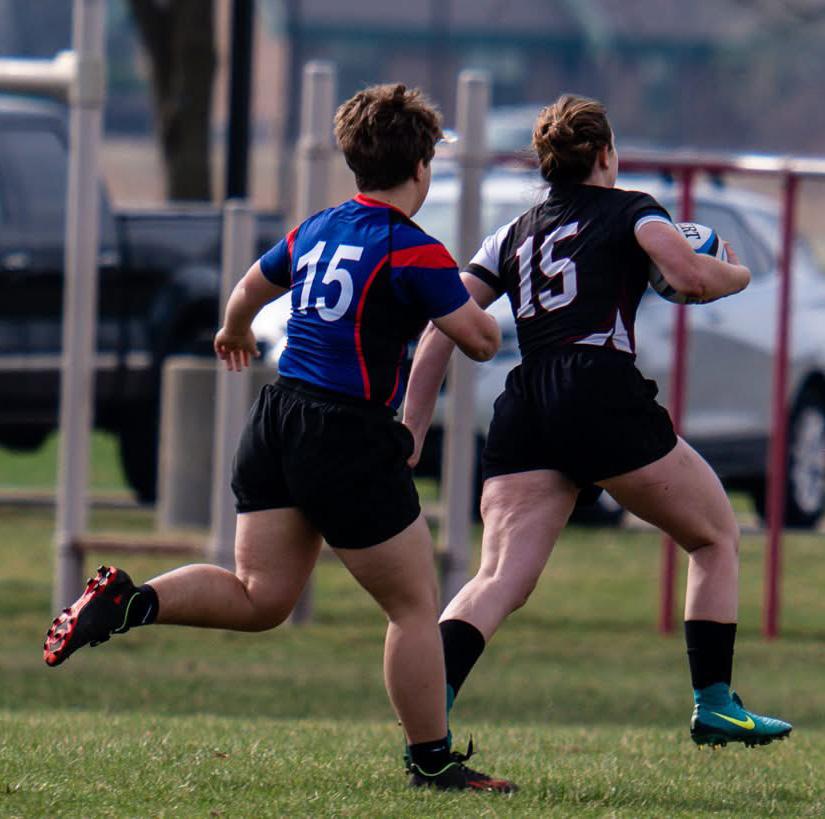
- Playing rugby taught me a lot of lessons. I first learned how to balance a life of school, lab, work, clubs, teaching, and sports. I also improved my communication skills because you have to be loud and direct on the pitch. The most important thing I learned was how to work as a team and being as supportive as possible to others.
What sport did you play and where did you play?
- I played volleyball at the University of Sioux Falls.
What or who inspired you to become a college athlete?
- My older sister played college softball, and I wanted to follow in her footsteps. I admired the strong sense of community she found with her teammates - I knew I wanted that too. I also hoped to earn a scholarship to help pay for school. I ultimately decided to play volleyball in college after attending games at the first U of M in my life: the University of Minnesota. Is there a moment or accomplishment that most influenced or shaped who you are today?
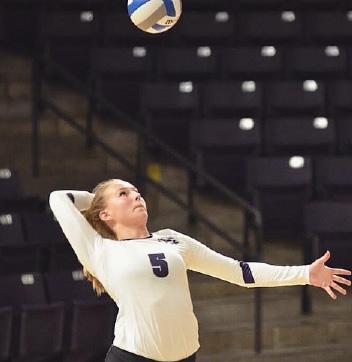
- Beating the #1 ranked team in the country - twice - to advance to the playoffs and being named an Academic All-American are definitely my most cherished accomplishments. I was especially proud of balancing rigorous academics with the demands of collegiate athletics. However, the moment I still reflect on most was my last game. Having my parents, sister, and grandparents in the stands and playing alongside teammates I had spent four years living and growing with was incredibly special. That game reminded me how much I loved being a student-athlete, how grateful I was to play the sport I loved, how far I had come - from an eager freshman to a confident senior - and the lifelong friendships I had built.
What lessons or skills did you learn from being a college athlete that are still helpful to you as a scientists, educator, or mentor?
- Being a student-athlete taught me how to juggle a million things without dropping the ball. I learned how to work as a team and how to bounce back from failure (a bad loss feels a lot like a failed experiment). I also learned to think critically and adapt. As a senior, mentoring younger teammates helped me step into a leadership role - something I still carry with me when mentoring students or collaborating in the lab.
What sport did you play and where did you play?
- I was on the MIT golf team for 2 years.
What or who inspired you to become a college athlete?
- My dad was a pretty good golfer, 9 handicap, and I never got below 13. He was my main inspiration, and my favorite pro was Gary Player, who was always in great shape.
Is there a moment or accomplishment that most influenced or shaped who you are today?
- Our coach Jack Barry also had us do regular weight training and running pre-season before we could get outside. I was on the JV team and never made varsity or any major accomplishments. We had many long trips in the van to get to the competitions and often returned late.
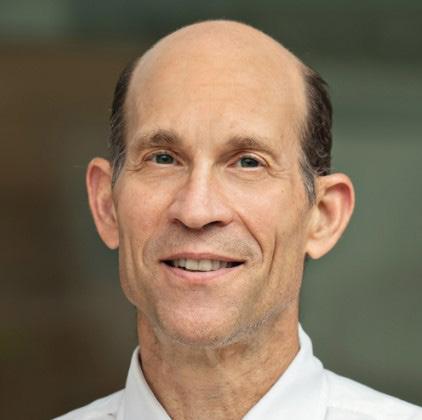
What lessons or skills did you learn from being a college athlete that are still helpful to you as a scientists, educator, or mentor?
- What doing a sport helped to teach me was time management and multitasking, as well as staying in a fitness routine throughout my adult life.
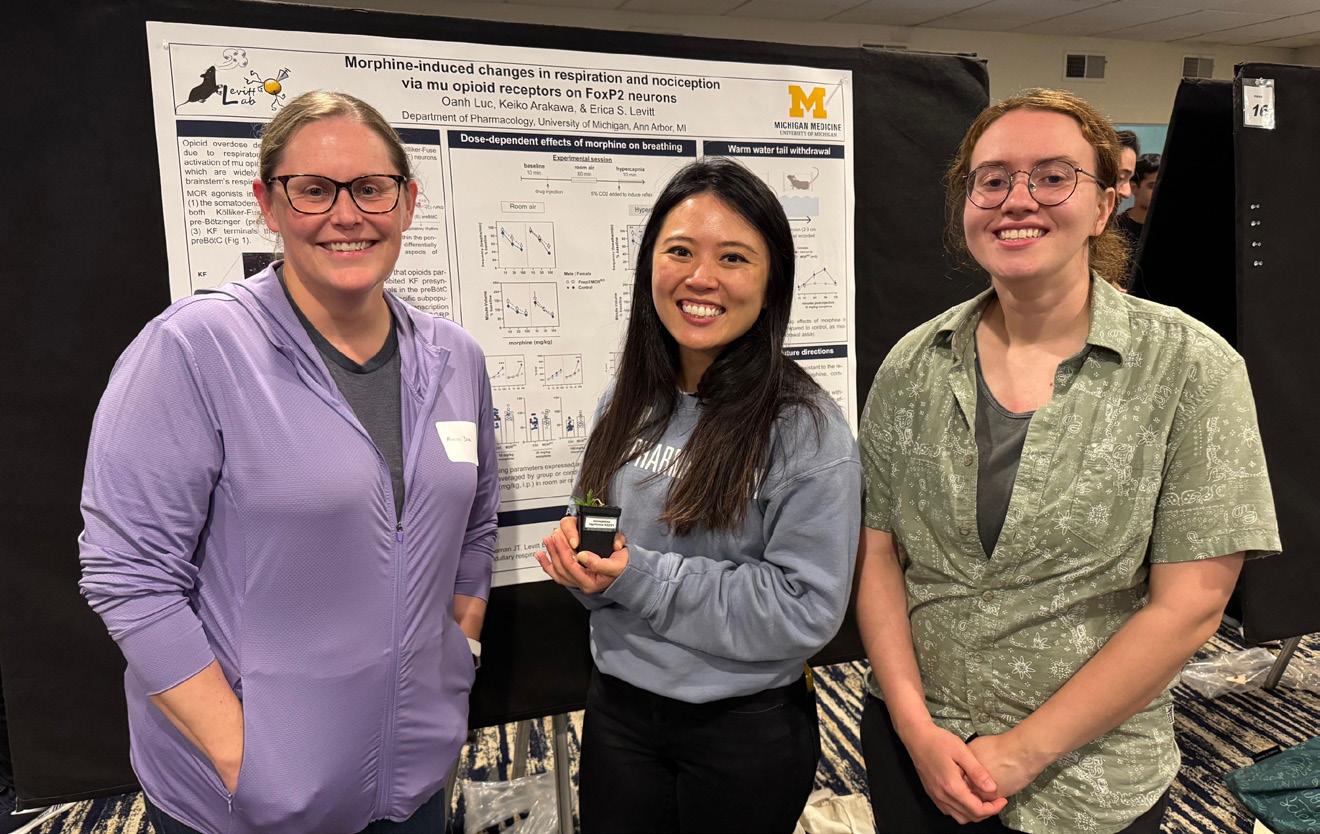
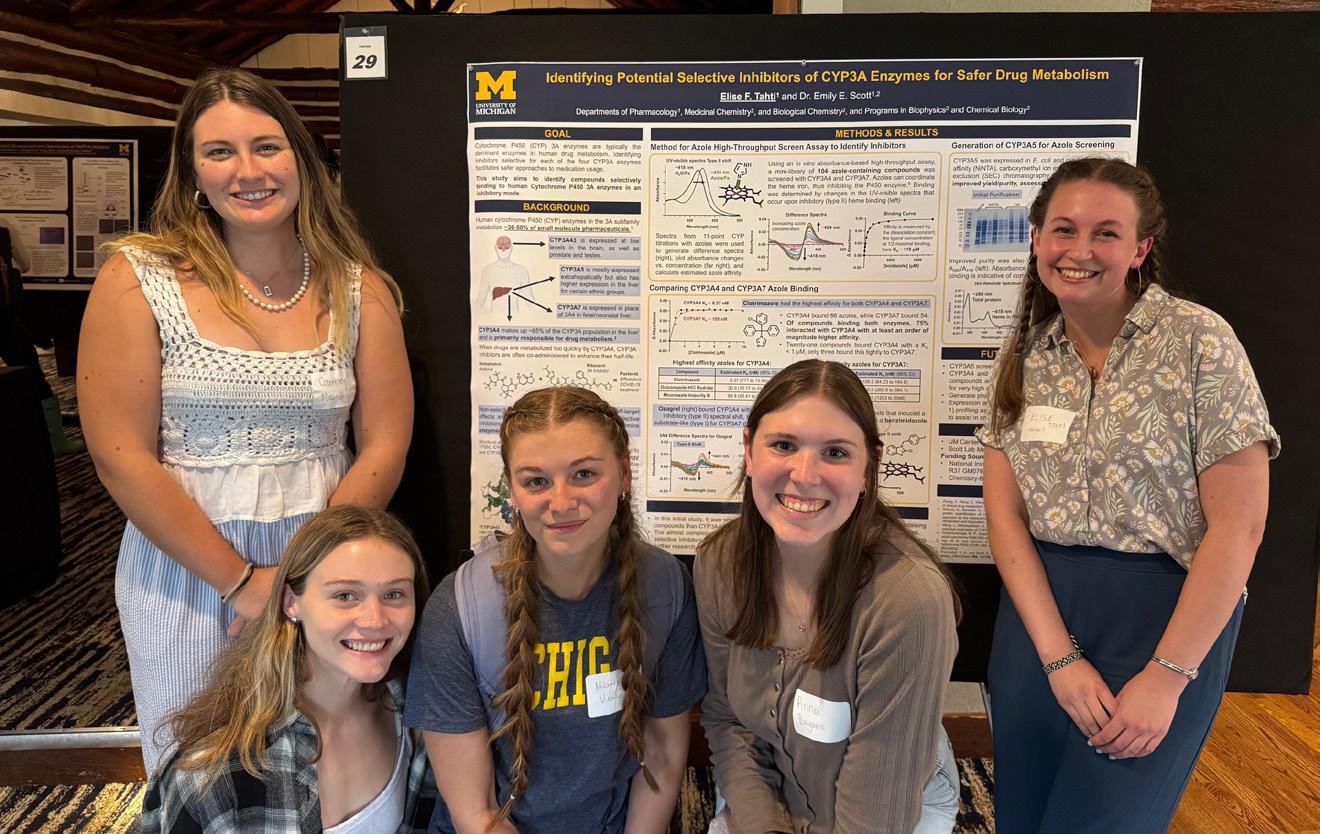
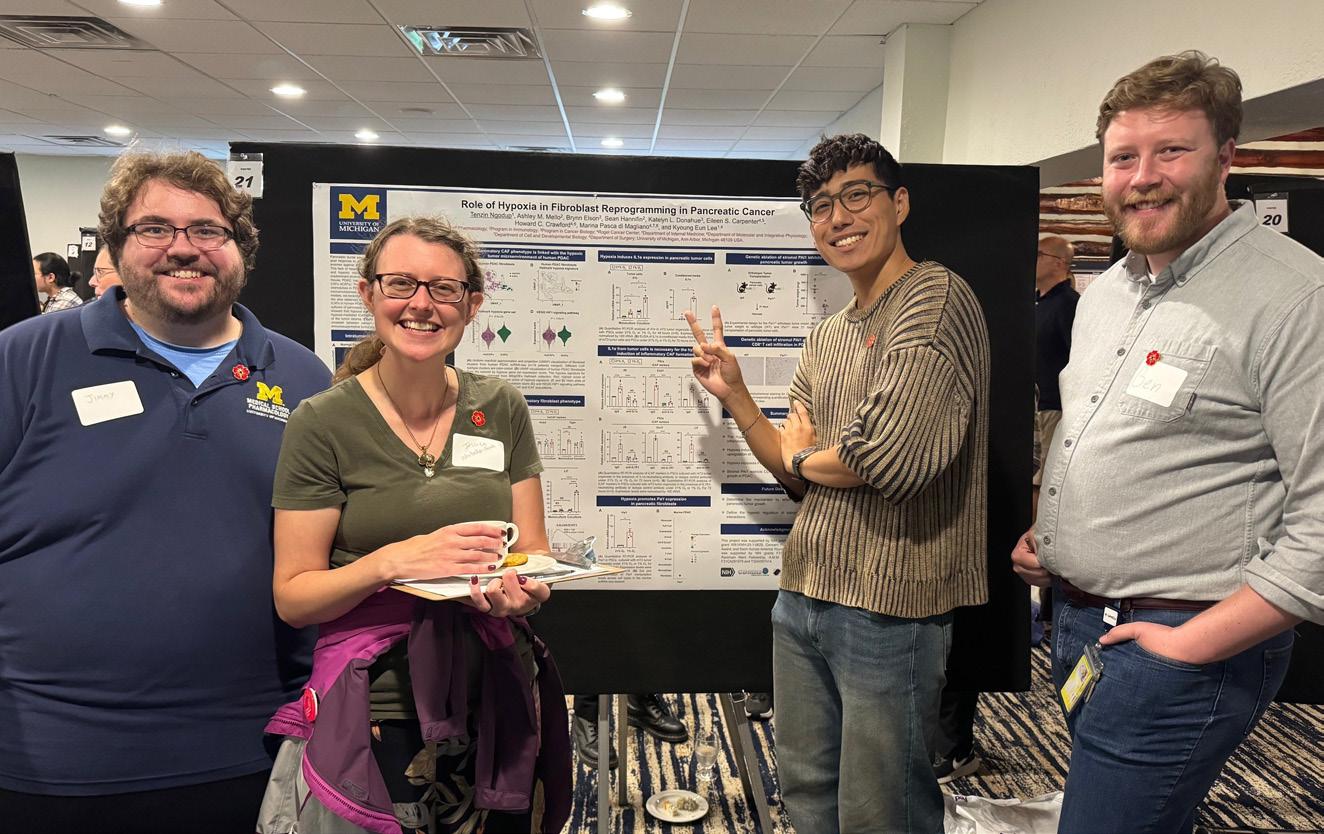
Please support graduate education at Michigan Pharmacology
Your donations fund learning and training opportunities for our outstanding graduate students, enabling them to advance their knowledge and enhance their skills in basic science research in varied and complex areas of study.
https://victors.us/pharmacologygradfund
https://victors.us/dominoresearchcenter
For any questions, please contact Melissa Lynch (lymeliss@med.umich.edu).

DEPARTMENT OF PHARMACOLOGY
University of Michigan Medical School 2301 MSRB III 1150 W. Medical Center Dr. Ann Arbor, MI 48109-5632 USA
(734) 764-8165
https://medschool.umich.edu/departments/pharmacology umpharmacology/


https://www.linkedin.com/ groups/5162943/profile

@UMPharmacology
2025 Pharmacology Newsletter Editor and Content Manager: Katie Hildebrand
Executive Officers of Michigan Medicine: MDavid C. Miller, M.D., M.P.H., CEO, Michigan Medicine, Executive Vice President for Medical Affairs, University of Michigan, Professor of Urology; Thomas J. Wang, M.D., Dean, University of Michigan Medical School, Josiah Macy, Jr. Professor of Health Professions Education, Chief Academic Officer, Michigan Medicine.
The University of Michigan, as an equal opportunity/affirmative action employer, complies with all applicable federal and state laws regarding nondiscrimination and affirmative action. The University of Michigan is committed to a policy of equal opportunity for all persons and does not discriminate on the basis of race, color, national origin, age, marital status, sex, sexual orientation, gender identity, gender expression, disability, religion, height, weight, or veteran status in employment, educational programs and activities, and admissions. Inquiries or complaints may be addressed to the Senior Director for Institutional Equity, and Title IX/Section 504/ ADA Coordinator, Office for Institutional Equity, 2072 Administrative Services Building, Ann Arbor, Michigan 48109-1432, 734-763-0235, TTY 734-647-1388, institutional.equity@umich.edu. For other University of Michigan information call 734-764-1817.
© 2025 Regents of the University of Michigan: